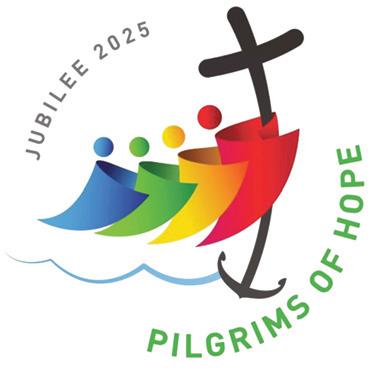
Published by Published CathCom Ltd, N2 Blois Meadow Business Centre, Steeple Bumpstead, Haverhill, Suffolk, CB9 7BN Ltd, N2 Blois



Published by Published CathCom Ltd, N2 Blois Meadow Business Centre, Steeple Bumpstead, Haverhill, Suffolk, CB9 7BN Ltd, N2 Blois

On Sunday June 15th a warm and joyful congregation gathered at Holy Trinity Church, Newark-on-Trent, to celebrate the 55th anniversary of Canon Fr Michael O’Donoghue’s ordination to the priesthood — a remarkable milestone in a life dedicated to faith, service, and community.
Fr O’Donoghue was ordained in 1970 at All Hallows in Dublin, a missionary College and now, over five decades later, he marked this special anniversary in the parish of St Francis of Assisi, where he continues to minister with quiet devotion and unwavering pastoral care.
The thanksgiving Mass was a deeply moving occasion, drawing parishioners, friends, and fellow clergy who came together to honour a man whose life has been rooted in the Gospel and lived in generous service to others.
Fr John Kyne delivered the homily remembering his own early priesthood with Fr Michael, his early mentor, ‘teaching by example’
Canon O’Donoghue expressed his gratitude not only for the gift of priesthood but for the many people who have supported and
enriched his journey over the years and who came from far and near to celebrate his Emerald jubilee.
Fr Michael is cherished for his deep pastoral sensitivity, wise counsel, and gentle humour. Whether celebrating the sacraments, visiting the sick, or offering a listening ear, he has quietly built a legacy of trust, compassion, and spiritual depth. His presence in the parish is a steady reminder of the enduring value of vocation and service.
He has been part of the fabric of the Newark community now since September 2008 , and his ministry has touched the lives of many across generations and denominations. Sunday’s celebration was not only a tribute to a long life of faithful ministry but also a testimony to the love and respect he has inspired.
Parishioners and friends of the parish of St Francis of Assisi retired after Mass to an evening of celebrations and to give thanks, so too does the wider Church — for 55 years of priesthood lived with faithfulness, kindness, and an open heart.
More photographs on page 6
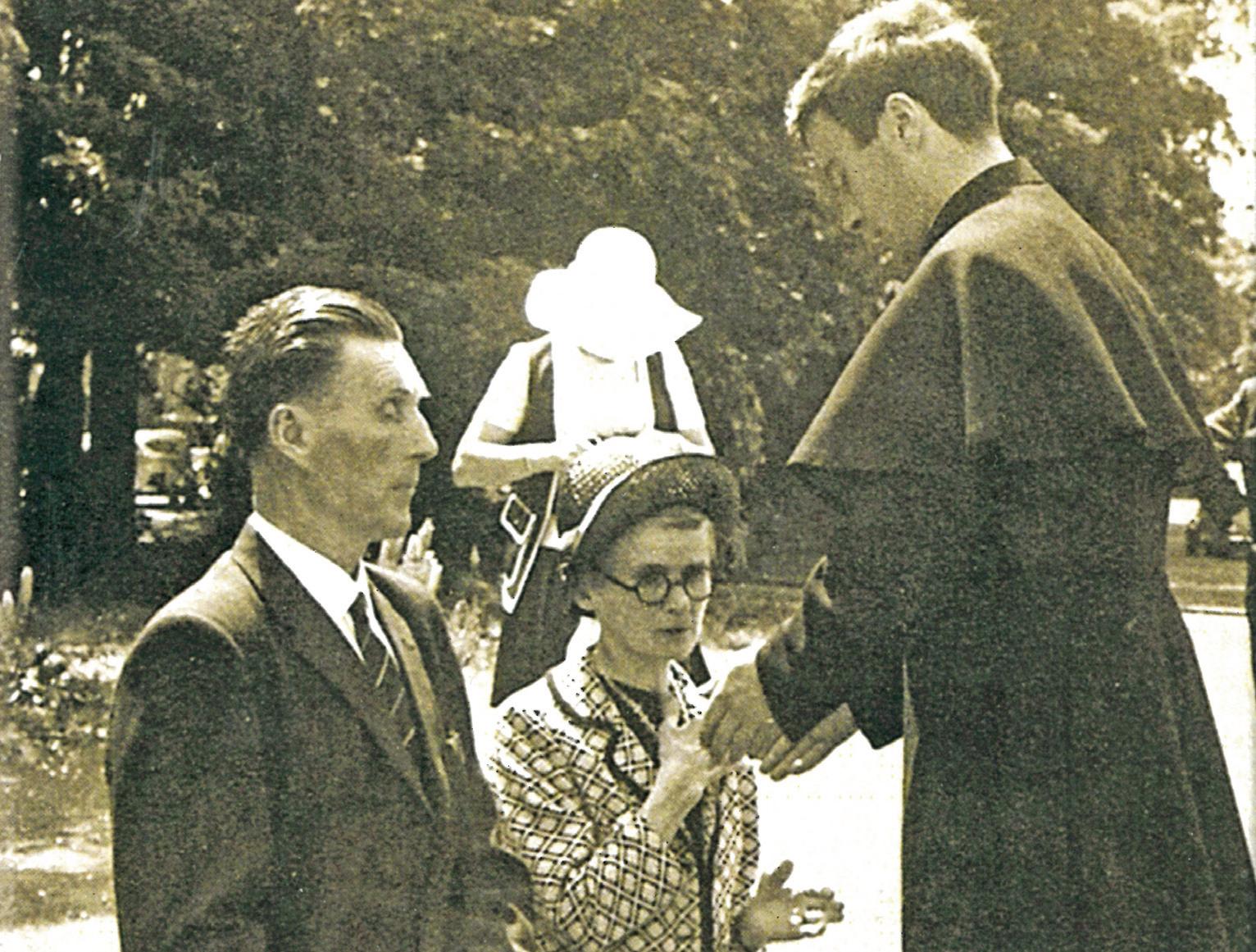

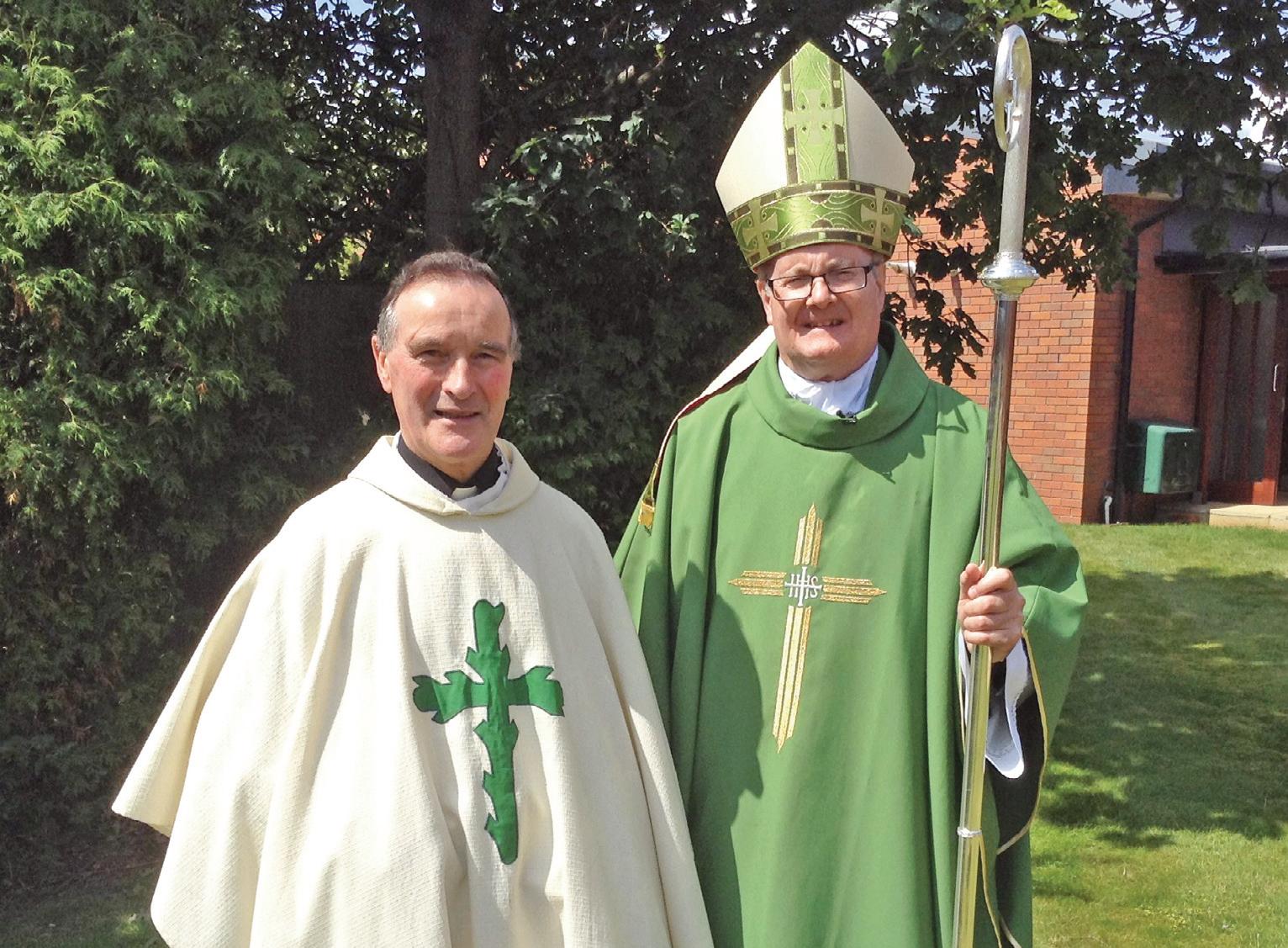

Editor: Nick Layton
Editorial Office: CathCom Ltd, N2 Blois Meadow Business Centre, Steeple Bumpstead, Haverhill, Suffolk, CB9 7BN
Telephone: 01440 730399
email: cn@cathcom.org or davidl@cathcom.org
Website: www.cathcom.org
Distribution enquiries: cn@cathcom.org
CathCom Ltd,
Publication date: Fourth Sunday of the month for the following month. Opinions expressed by contributors are not necessarily those of the Editor or the Diocese.
Publishers and Owners:
CathCom Ltd, N2 Blois Meadow Business Centre, Steeple Bumpstead, Haverhill, Suffolk, CB9 7BN
Advertising: tel: 01440 730399
Parental permission should be sought before submitting photographs of minors.
Views expressed in The Catholic News are not necessarily those of the editor.
The Catholic News is looking for a Parish Correspondent in your parish to send in local news for publication in this newspaper. All items to be emailed to cn@cathcom.org before 10th of the month





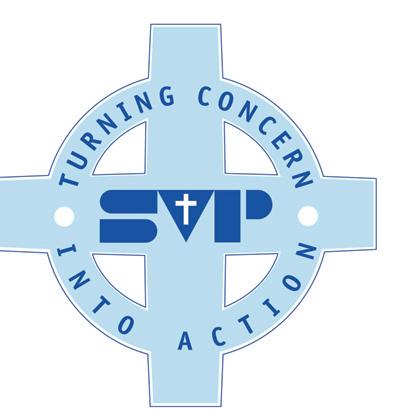
Once again, our thanks to Jo Cornwall, a member of the SVP, who penned this reflection for our contemplation.
My son recently told me about a conversation he had with a classmate who corrected him when talking about his Christian faith and said “no, you aren’t a Christian, you are a Catholic”. My Son had never encountered this confusion before because from his vantage he certainly considers himself both. How we talk about ourselves is important to how the world perceives us, but also it impacts how we approach the world.
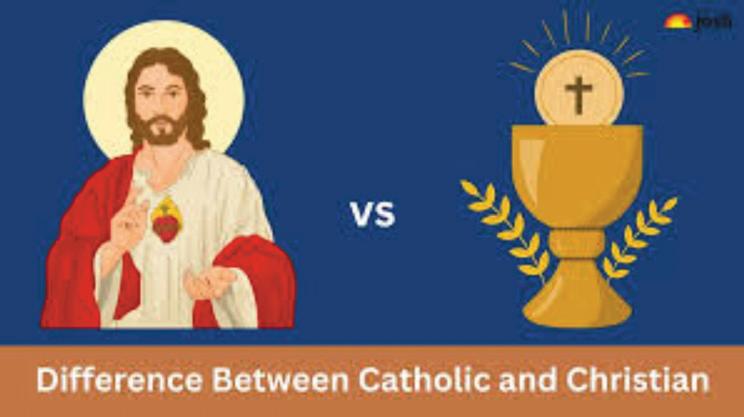
How do we talk about our Vincentianism if we do at all? For six years it has been my job to travel the UK and indeed internationally and talk to people about the Society of St Vincent de Paul, encountering confusion in many conversations; “isn’t that a secret organisation?... I would join but you don’t let women take part… I think my uncle was one of them, but he never told me what he did” or sadly the most memorable for me “I would join you, but I am looking for an organisation who help all people not just Catholics”
Do you know how many times the title “Christian” is used in the bible? I asked this question at a seminary recently. I ask because it surprised me - the answer is three. Only three, obviously all in the New Testament, but still only three. The word is
most often used by outsiders to describe the group of followers that they perceive. We did not appoint ourselves Christian partly because the title is so grand, it implies that I am more than a follower, I am defined by my relationship with Christ and am prepared to witness to the world with my life.
The early Christian would more readily call themselves a disciple, a student, someone trying but still failing. It is fascinating that in two millennia while the meaning of neither of those words, Christian and disciple, have changed, the intensity has. There is little risk of execution for the person saying that they are Christian, we lived until very recently in a majority Christian society; it simply means that we probably take an hour our of our day during Christmas and Easter while the rest of the world enjoys the same gifts and chocolate eggs we do. But to say you are a disciple… wow, does that mean you are really trying? Whether we like it or not there is a great deal of misunderstanding in the world about who we are and what we believe.
This does pose an opportunity for us though, and it is the ability to surprise. When we leave our comfortable communities and step into the world, when we go above and beyond for our neighbour who does not understand our generosity, when we discover real, true and deep love for others because we have recognised the face of Christ, we confuse people and often impel them to ask ‘why are you living this way?’ In doing this we are living as Christ

















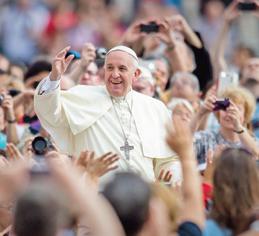
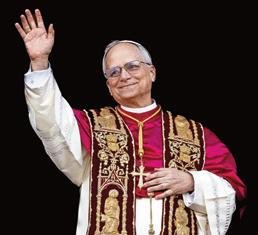
For much of the early part of this century we have witnessed a growing crisis in our prisons. Most of our young people considering their employment prospects would not opt for a life as a Prison Officer, sadly our prisons are very full.
With so many “reviews” on public causes for concern it would be easy to forget the independent sentencing document a few weeks ago led by former justice secretary David Gauke. This brought about the revelation that prisoners would be released after serving a third of their sentence, more offences to be dealt with in community and a trial of chemical castration for sex offenders.
With much concern for our defence policy the constant worry for care of our ageing
population and the pollution issues in our water industry the need for a “prisons review” joins a long list which will be with our country for a long time. I suspect the failure to build new prisons while we put more people behind bars is a sad example of failure made worse by the failed attempt to change our probation service a few years ago.
So how do we prevent young people falling into a life of crime? In past times community groups have been effective but repeated cuts have sadly led to more social issues over the years, and it is not easy to build confidence and skills in a rapidly changing world. We should also never forget that about a third of children are growing up in poverty or that the two-child benefit cap does deny a third child vital support in some households.
asked us to: “let your light shine, so that they may see your good deeds and glorify your Father in Heaven” (Mt. 5:16).

How do we convince the world that Catholics are Christians? That Vincentians aren’t a secret club, that disciples are a thing of today not just in Jesus’ time. By living visibly, by confusing bystanders with our love and when asked being confident to explain ourselves. This is far more effective evangelisation than anyone shouting in the street will ever achieve. They will know we are Catholic by the buildings we meet in and Sacraments we celebrate, they will know we are Christians by where we fix our hearts, they will know we are Vincentian by our work in the world and they will know we are Disciples because we are trying and are willing to learn from our mistakes. Live boldly and be ready to respond to confusion with great love.
Helpers required for Summer Camp 2026
The SVP plan to run a diocesan camp for 24 children aged 9-11 for 5 days next August 2026. We are looking for ANYONE, not just SVP members, who would be interested in offering their help in any capacity as a helper. If you would like to find out more, please contact Lance Philpott at lance.philpott59@gmail.com
By Frank Goulding

My final concerns on this subject relate to the report from the Royal Paediatrics and Child Health. This has revealed that long waits for child care are needing urgent action with some cases waiting for more than two years. In short we need to be much more pro-active on any issue which may lead our young people into crime.
As you receive this newspaper we will be celebrating the feast of Saint Peter and Paul. These 2 brave men knew all about being in prison and much more before their martyrdom in Rome. Our young people need to know about how they overcame their early mistakes with goodness and self control. The Catholic News. July 2025.
Founded in Glasgow, in 1919, The Knights of Saint Columba is an Order of Catholic laymen, who serve the mission of the Church, through a variety of activities, that includes: fundraising (a different charity is chosen every two years, it is currently The Alma Mater Fund), helping young people to grow in Christian discipleship, addressing spiritual needs and assisting parishes and clergy.
The Order also safeguards the relics of three Saints with Scottish links and holds a tour, every couple of years, known as the National Relic Tour of Saint Columba, St Margaret and St Andrew, to give people across the country an opportunity to pray with the relics and to remember the Saints (and their lives of holiness) in the hope of deepening their faith. The city of Lincoln was privileged, this time round, to be included.
Over three consecutive long weekends, the relics were available for veneration at the churches of: Our Lady of Lincoln, St Hugh of Lincoln and St Peter & St Paul. St Hugh’s Church was fortunate in that the Feast Day of St Columba (9th June), patron of the Order and whose name means ‘dove’, coincided with the parish hosting the relics and so a special Mass, followed by refreshments, was offered in the evening to celebrate, attended by local members of the Order.
Thank you to the Knights of Saint Columba for their service to the Church. More information about the organisation and the tour can be found on their Facebook page and website (www.ksc.org.uk).
Jo
“Then I better wrap myself up and give myself more often.” The words of a participant pondering the novelty they are a gift, over tea and cake, at the end of a prayer session and celebration for Ascension Day. Following morning Mass for the Solemnity, a small group of individuals showed up in the hall of St Peter & St Paul Church in Lincoln, following an advert in the parish newsletter inviting people to ‘New beginnings with Mary’.
The session started by invoking the help of the Holy Spirit and involved seven prayer stations. Our Lady prayed with the disciples in the upper room in the run up to Pentecost and the first station extended the invitation to ask Our Lady of Czestochowa for her assistance. The next five stations told stories of the lives of African disciples who experienced persecution for their Christian Faith and who, through the work of a Christian charity, embarked on a journey of healing and were helped to see beyond their brokenness to their identity in God, enabling them to return to their lives in a different way. The final station asked a number of questions, including whether we can see ourselves, and others, as a gift to be received.
From the discussion over refreshments, that question was considered the most challenging. People had considered
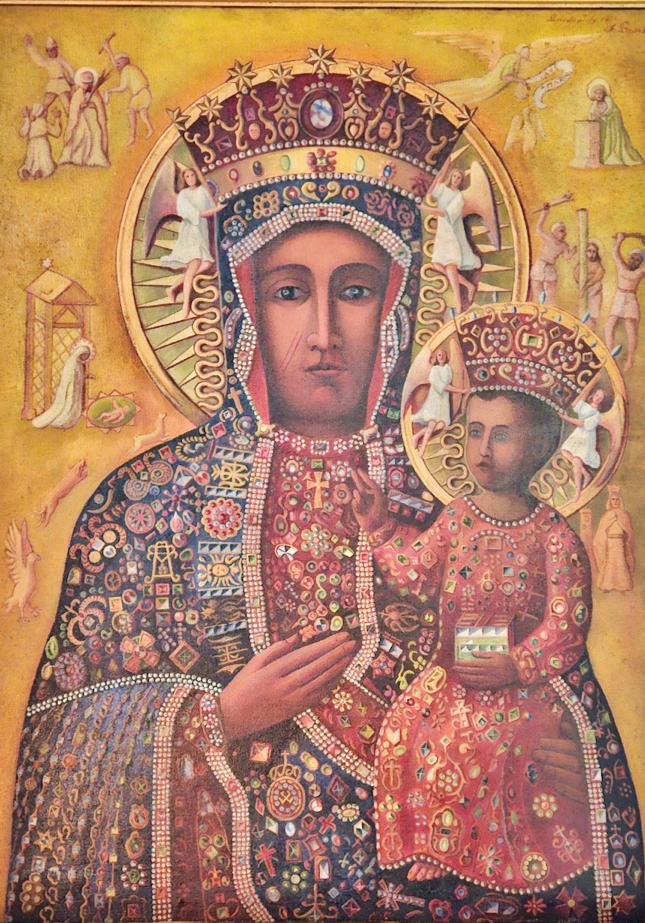
themselves and others as having gifts, to offer and receive, but had not considered they were a gift simply by their conception. Hopefully the morning helped all present to look at themselves (and others) afresh, and with Our Lady’s help, to see in a new way, wrapping included, the beautiful child of God, and gift to the world, they are.
The photograph is of an icon of Our Lady of Czestochowa located in a side chapel of St Hugh’s Church, Lincoln. Her Feast Day is coming up next month, 26th August. Our Lady of Czestochowa, pray for us.
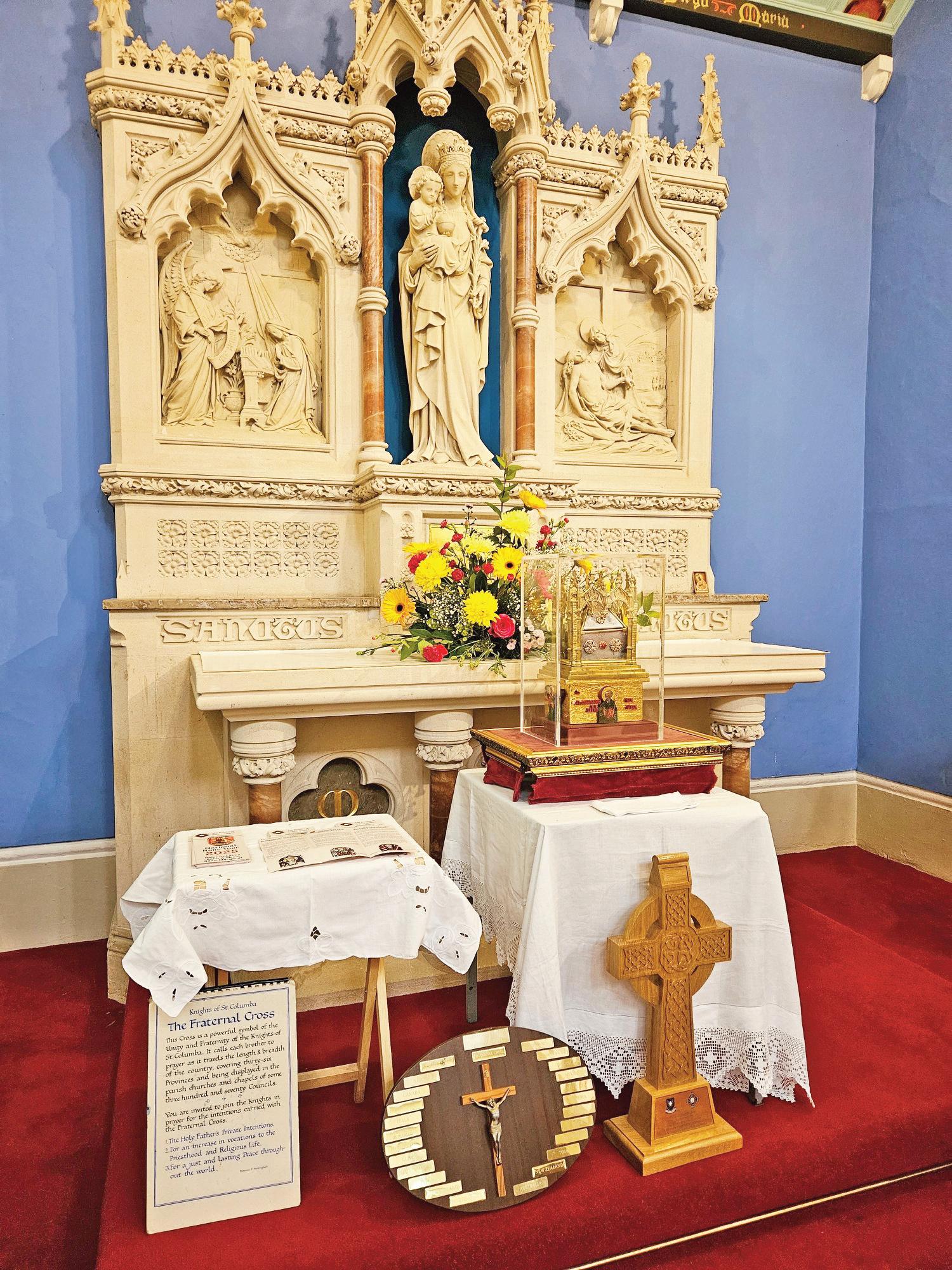


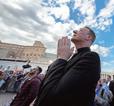
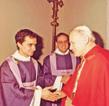
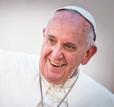
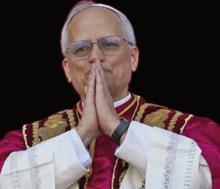




e
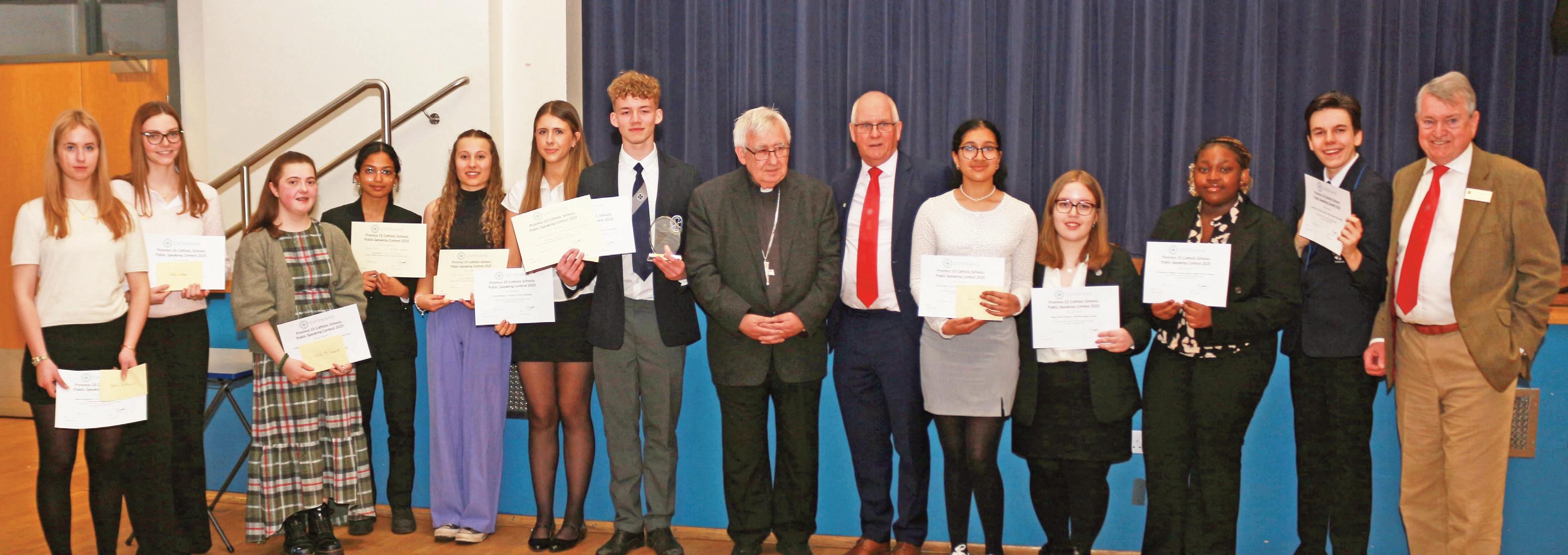
Another year, another excellent contest for the Province 15 Public Speaking Trophy. This year, there were 11 entrants from our Catholic schools who gathered at The Becket School in Nottingham for an interesting and eventful afternoon. We were pleased to welcome Bishop Ralph Heskett from Hallam diocese, Catenian Association National President Andrew Sowerby and his wife Maria as well as National PS Coordinator Graham Sivills who recently took on the mantle of overseeing contests across the UK.
Our youngest contestant, a 16-yr old from St Martin’s Catholic Academy in Stoke Golding, spoke enthusiastically about which animal he might be and illustrated his speech with some appropriate examples from his “bag of tricks”. Others argued movingly about the need for
forgiveness and the discussed the qualities that are demonstrated by recognising our own failures. Some chose to debate the benefits of technology, whether there is a gap growing between generations, the perception of beauty and the need for government intervention on matters of conservation. All spoke with authority beyond their years and gave us both entertaining and enlightening speeches.
The eventual winner was judged to be Shanley Robinson, from St Mary’s High School, Chesterfield whose teacher was thrilled to discover that they have now won on 6 occasions since the inception of this contest in 2008. Bishop Ralph, who is also Bishop for Youth and led us in prayers at the start of the afternoon, was delighted that St Mary’s had won as it is one of his diocesan schools.
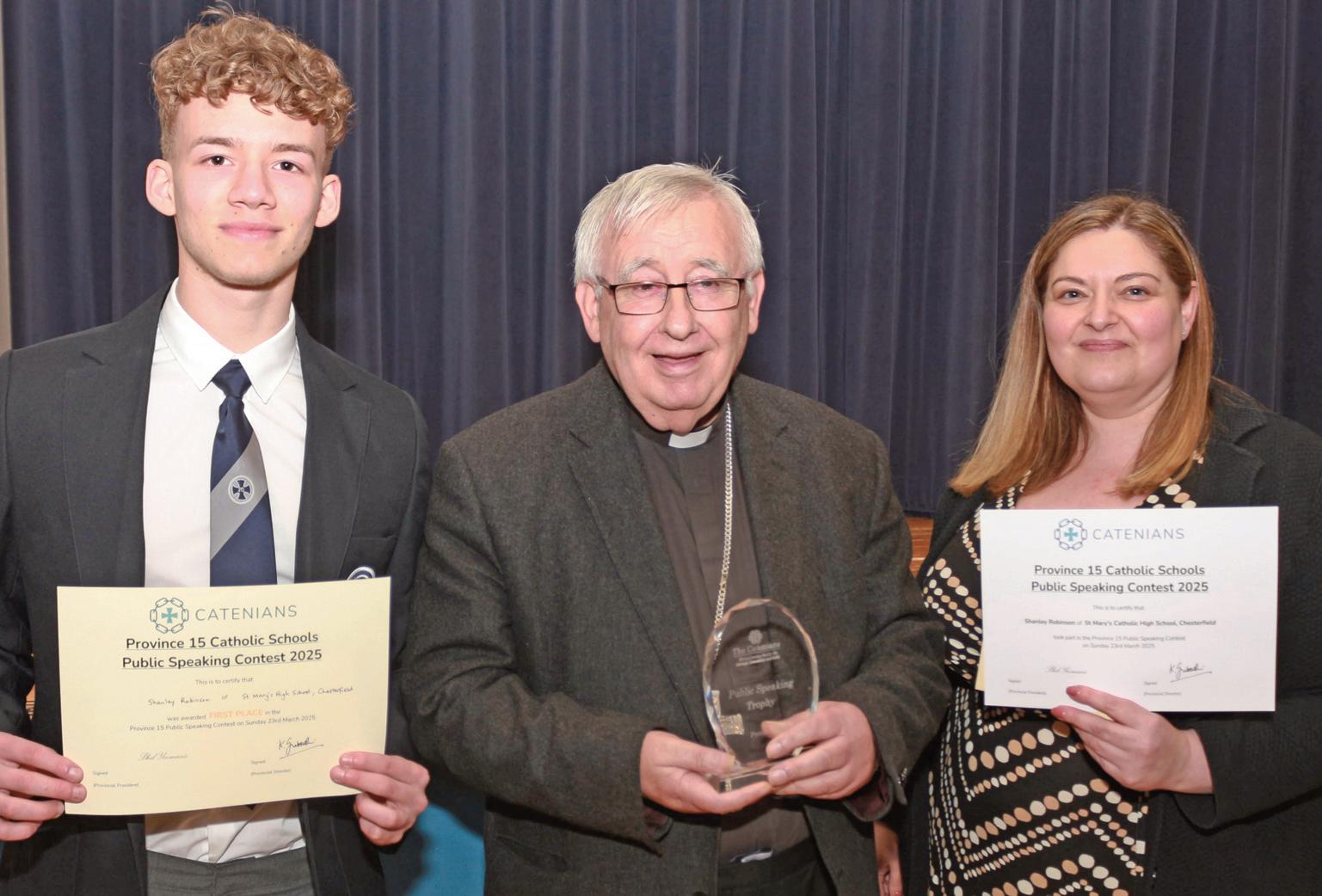
Listen, carefully, my son to the master’s instructions, and attend to them with the ear of your heart.This is advice from a father who loves you; welcome it, and faithfully put it into practice …..“ these are the words which open the little rule of St. Benedict which has been heard and read for over 1500 years.
On July 11th we celebrate St.Benedict’s Feast Day which is a special day here in our ‘hermitage’ because it’s not only our patronal feast but also our anniversary of Priestly ordination. This annual feast offers an opportunity for renewed reflection on the life and teaching of St Benedict, which gives a way of Christian living, emphasising prayer, work and community. The Holy Rule with its focus on a balanced life of prayer, work and study continues to inspire many today, offering a practical framework for
spiritual growth and a model for living a life dedicated to Christ.
Here, we often read commentaries on St Benedict’s rule and we observe that the rule is written in the present tense for all of us today, as though Benedict was in our midst, sharing with us here and now. The influence of Benedict is profound and after reading some of the Benedictine scholarly commentaries and particularly on the prologue we can begin to get into the mind of St. Benedict and begin to discern what Benedict say’s to us today through the first phrase of the rule ‘ LISTEN CAREFULLY’ Perhaps he knew that true listening is an art so he added the word carefully.
The Rule of St. Benedict provides us with many examples and invitations to listen. Recently we have heard much and have been involved and continue to be involved
in Synodality which involves much ‘listening’. It means listening as disciples, as individuals. as a church, listening to the divine voice,listening to the master, listening to scripture, listening to the rule, and while not stated directly in Benedict’s rule, listening to one another!
Listening pre-supposes that we are not filled to the brim with ourselves, but rather that we have some empty space within ourselves, so that we can hear the words of scripture, hear God working daily in our lives. St Benedict invites us to listen and to listen carefully! An active listening is what Benedict calls for in his little ‘rule for beginners’ and listen not least to others who share in God’s Kingdom.
Have a Happy St. Benedict’s Day on the 11th. Remember us in your prayer as we continually pray for you.
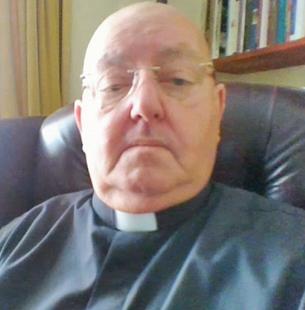
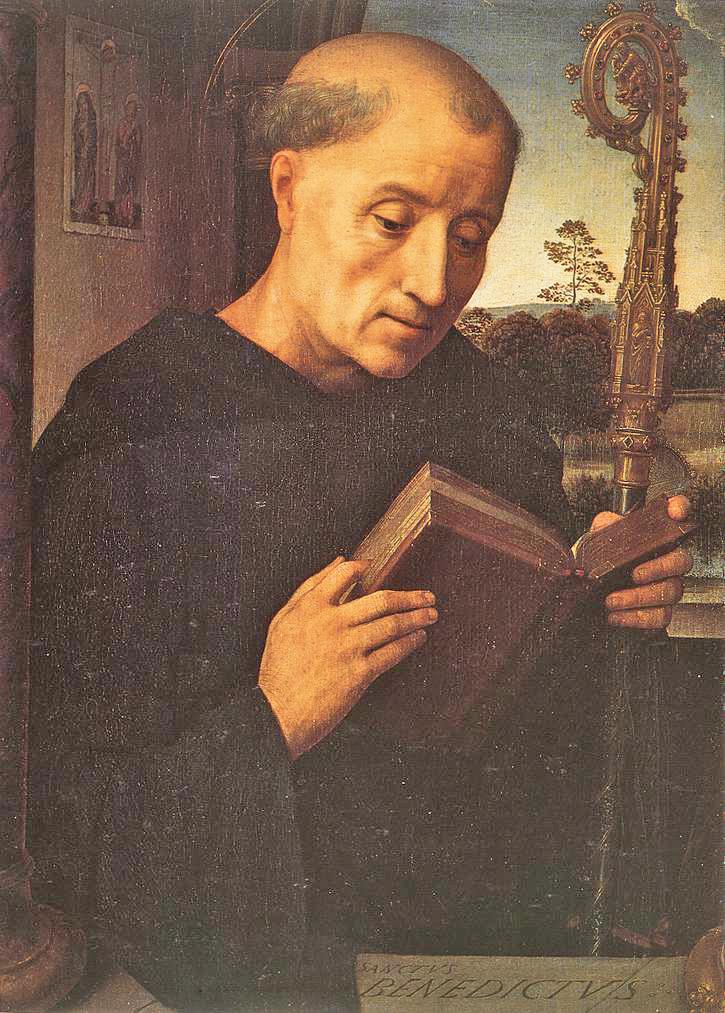
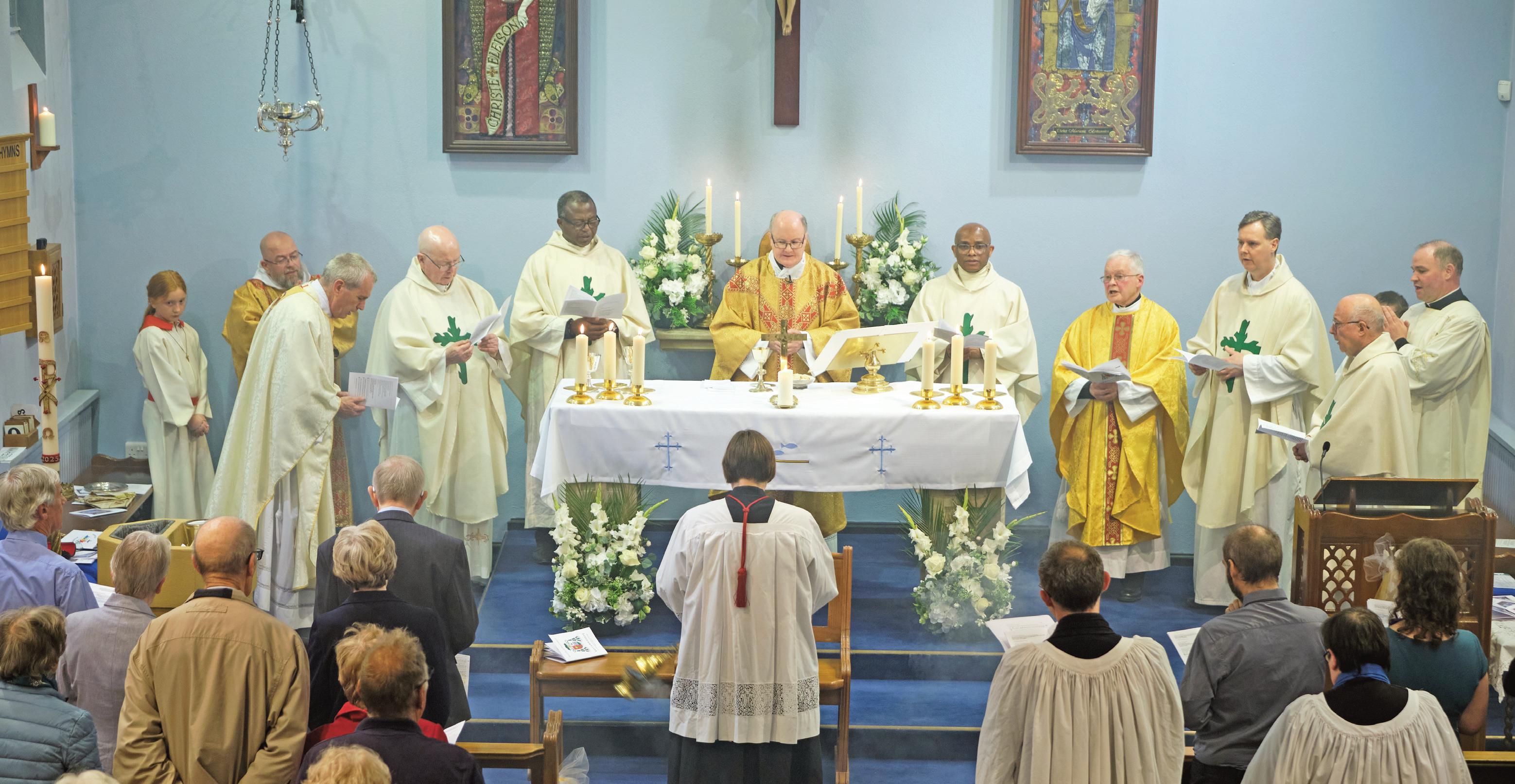
After 70 years, when Mass was first celebrated in Our Lady of the Angels East Leake, Bishop Patrick came to celebrate Mass on May 15 2025, to commemorate the anniversary.
While looking through the history of the church, a natural thing to do for such an occasion, we realised that the church had never been consecrated. And so, the plan fell into place to both celebrate the anniversary and consecrate the church.
Plans were developed to make the event very special; the liturgy, music, church decor and refreshments all received detailed attention. Our resident historian, Nikki Henning, lovingly created a splendid display of old photographs and information covering the past 70 years.
It was a splendid evening attended by more than 80 people. This included priests from our Deanery, previous parish priests, guests from the other churches in East Leake, local dignitaries including the Mayor of Rushcliffe Andy Brown, the chair of the East Leake Parish Council Eleanor Robinson, fellow Catholic parishioners from Keyworth and Shepshed and of course some very happy parishioners of Our Lady of the Angels.
The Consecration Mass itself was beautiful and included consecrating the church building, the altar and the tabernacle. A special slab containing the relics of Saints Crescens, and Clementia was inserted into the altar; one of our pictures show Bishop Patrick anointing the reliquary. Others show an altar server lighting one of four
permanent candles that confirm the Consecration, and the celebration of Mass.
During his homily Bishop Patrick provided a greater insight into consecration and reminded us how rarely such events take place and how lucky we were to witness it – he himself has only performed two church consecrations before.
One extra photo: after Mass, there was time for a splendid social gathering with plenty of memories being shared whilst enjoying some lovely refreshments.
A very special evening that everyone who attended will always remember.
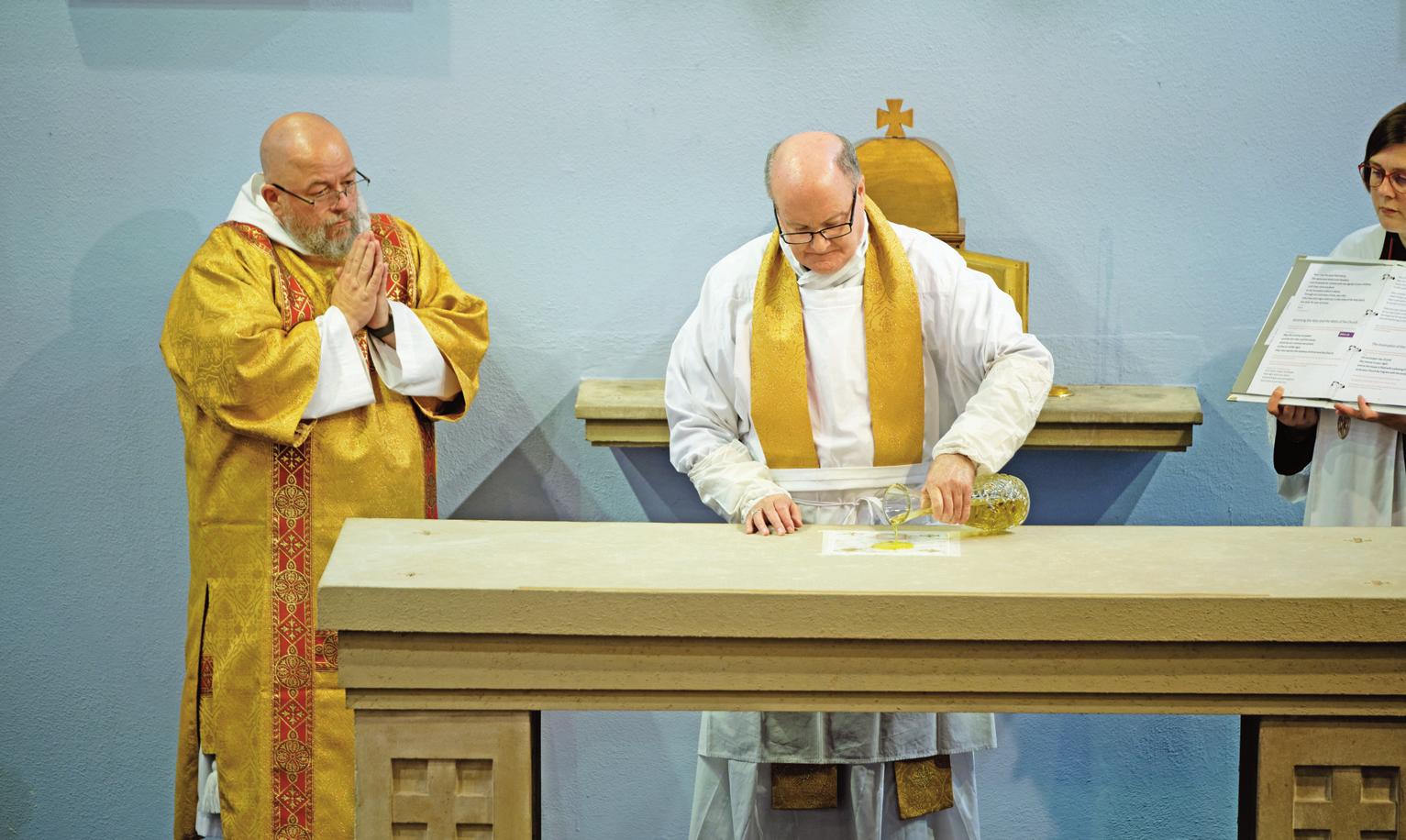
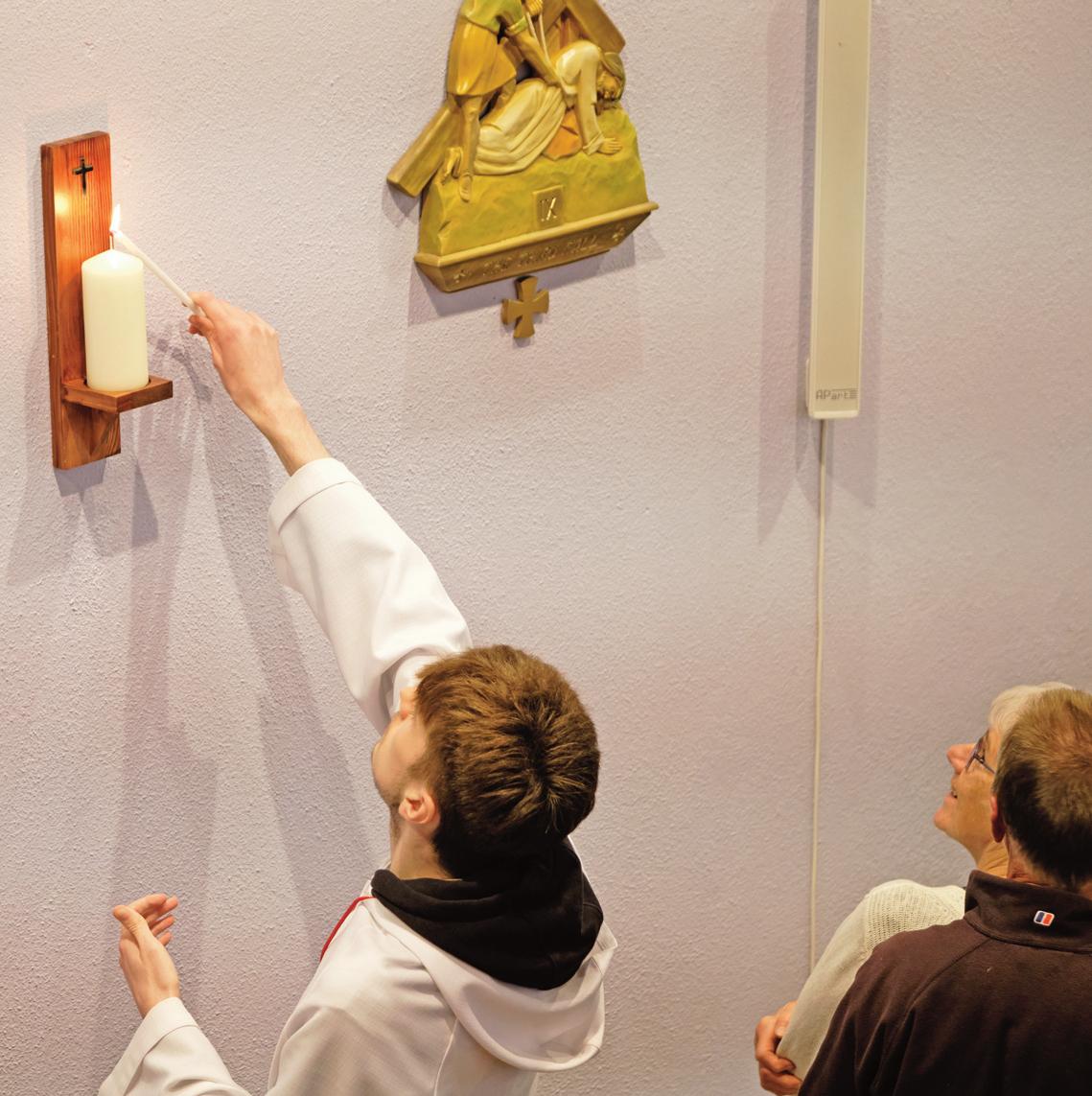
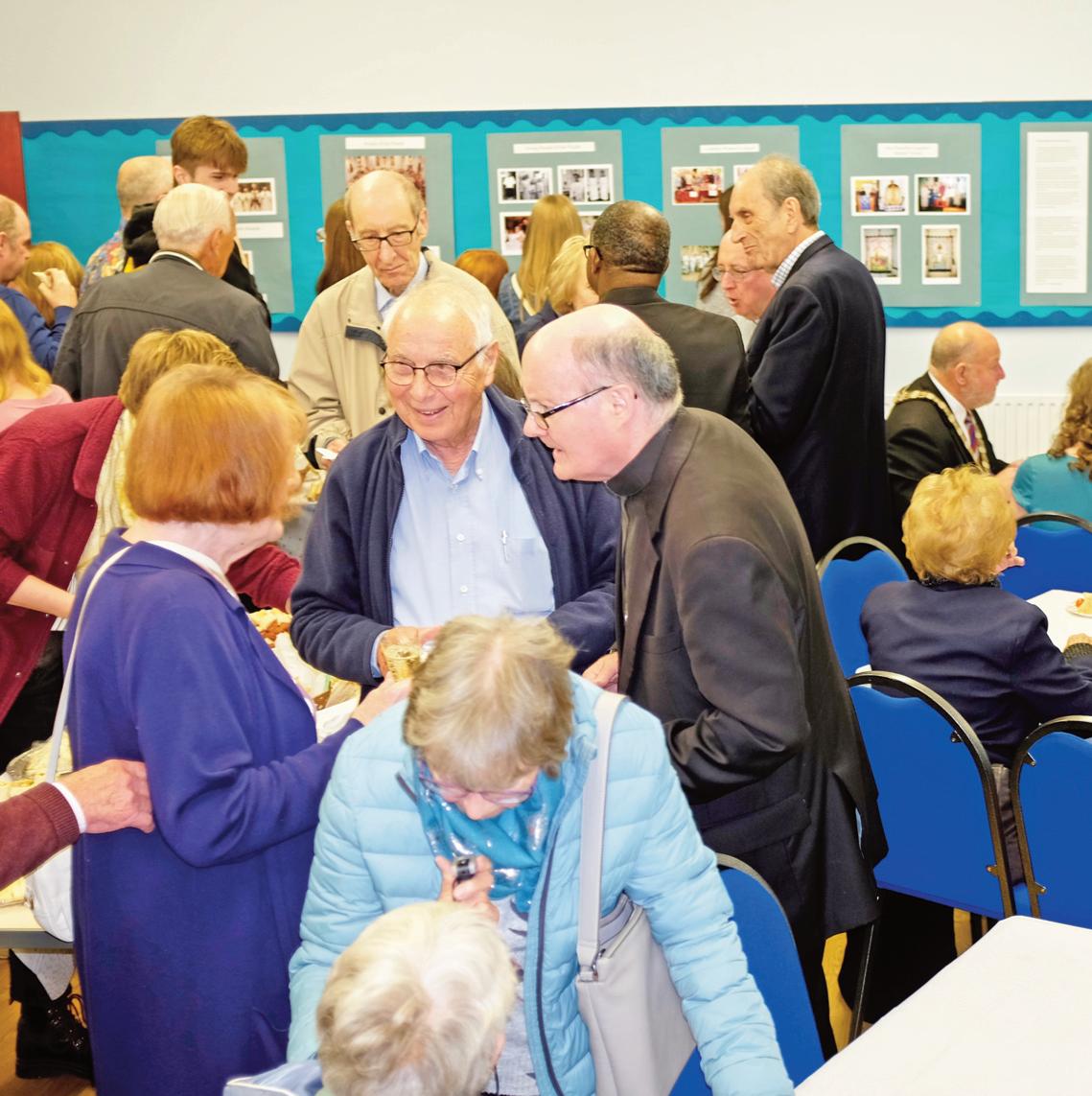
By Fr Jeremy Corley
Abraham is a figure who unites the world’s three great monotheistic religions. For the Jewish people, Abraham is their common ancestor. For Christians, he is our father in faith, as one of the eucharistic prayers calls him. For Muslims, Ibrahim is the friend of God.
He appears in the Book of Genesis rather suddenly, when God calls him to leave familiar surroundings and become a pilgrim: “Go from your country and relatives and father’s house, to the land that I will show you” (Gen 12:1). God offers him no explanation why he must leave, but anyway Abraham departs as he has been instructed.
For us Abraham is a model of a pilgrim. In life nothing stands still, and we need to move forward. As Christians, we know that we have no permanent dwelling on earth, because we are called to the eternal life of heaven. Yet sometimes we can be tempted to cling on to what is familiar,
and be slow to move forward when God calls us.
As someone who has come from his original homeland to a different country, the nomadic Abraham appreciates the value of hospitality and hence is willing to welcome others. We see this characteristic in the first reading for the 16th Sunday of the Year (20th July)
Three travellers arrive where he is encamped at Mamre near Hebron, in the southern part of the Holy Land. Instead of ignoring them, Abraham offers them generous hospitality. His wife Sarah bakes some loaves, while Abraham slaughters the fatted calf, to prepare a fine meal for the unexpected visitors. We are reminded of the similar welcome shown by the father when the Prodigal Son returns home in the gospel parable.
The three visitors are more than merely human. They have a prediction for Sarah, who has been childless for many years. One of the three is in fact the Lord God himself, who promises to Abraham:
“I shall visit you next year, and your wife Sarah will have a son.” God has finally responded to her longing for a child, and her son Isaac will play a key role in the biblical story.
Christian interpreters have understood this episode as an early revelation of the three persons of the Divine Trinity. We see this most clearly in a famous icon by the Russian artist Andrei Rublev, depicting three figures sitting round a table. God the Father is portrayed with a blue undercoat and a translucent mantle, God the Son with a red undercoat and a blue mantle, and the Holy Spirit with a blue undercoat and a green mantle.
As a contrast to Abraham’s hospitable welcoming of the strangers at Mamre, we hear of the inhospitality of the people of Sodom in the first reading on the 17th Sunday of the Year (27th July). According to the prophet Ezekiel (16:49), the guilt of Sodom included pride, overindulgence in food, and prosperous ease, combined with a refusal to help the needy.
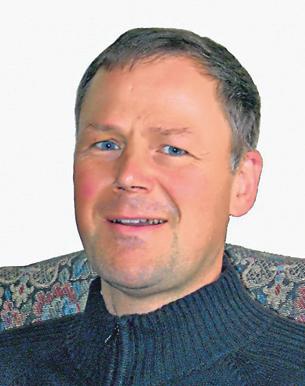

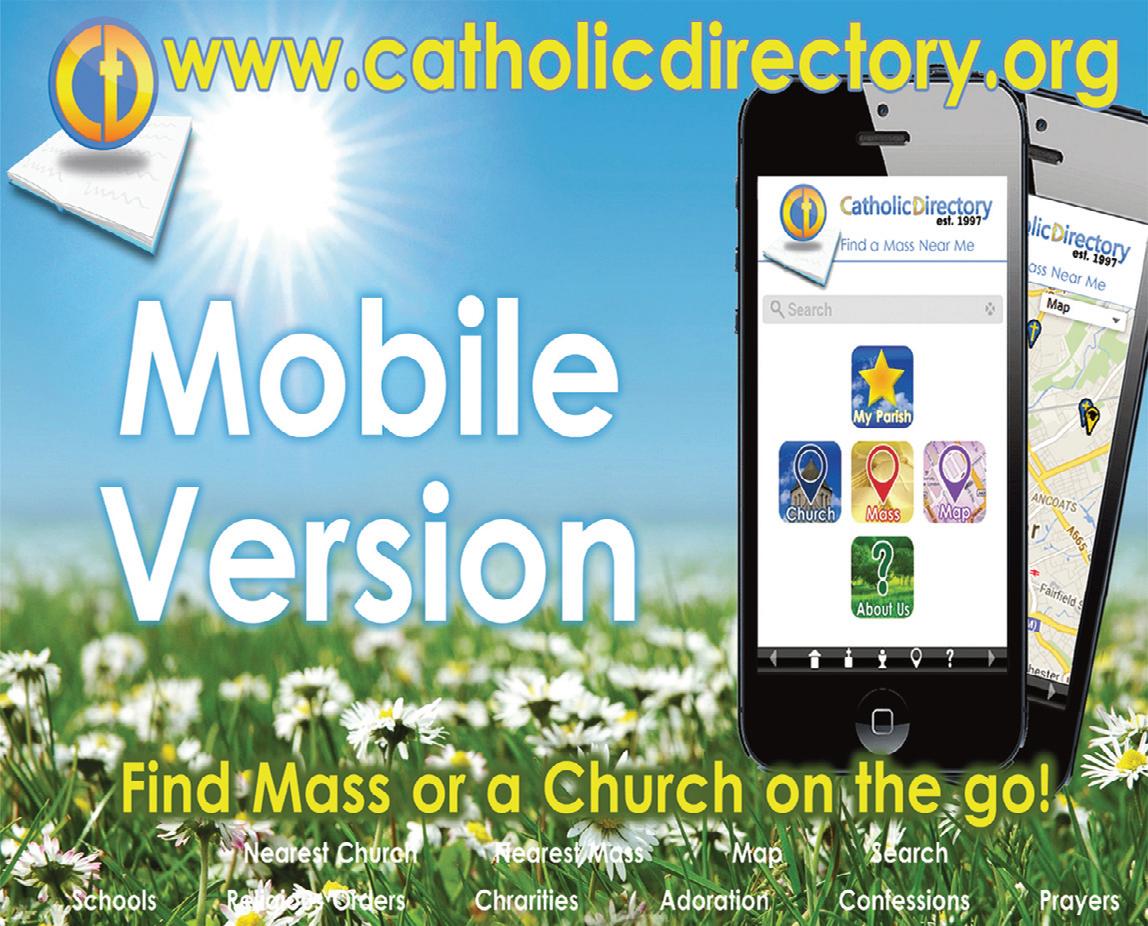


Yet rather than condemning the inhabitants of the sinful city, Abraham intercedes for them. When he hears that the city is doomed, Abraham bargains with God for their lives, as if he is more merciful than God: “Will you destroy the righteous with the wicked? Shall not the Judge of all the earth do right?” Abraham gets a promise that God will not destroy the city if he finds ten righteous persons in it. But sadly this is not so, and the city is finally destroyed.
Although Abraham lived long ago, his example still challenges us today. As a pilgrim, he was willing to move out from familiar surroundings in response to God’s call. As a hospitable person, he was willing to welcome unknown strangers. And as a person of prayer, he interceded for those facing doom.
As Christian pilgrims, we are called to be people of hospitality and prayer. May the example of Abraham inspire us in our lives today.
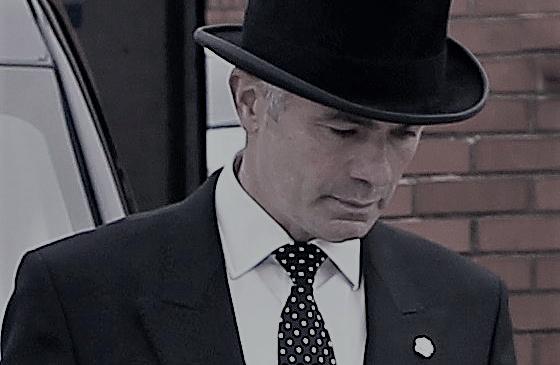
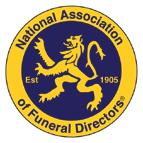
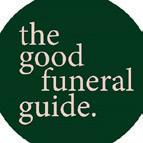
a
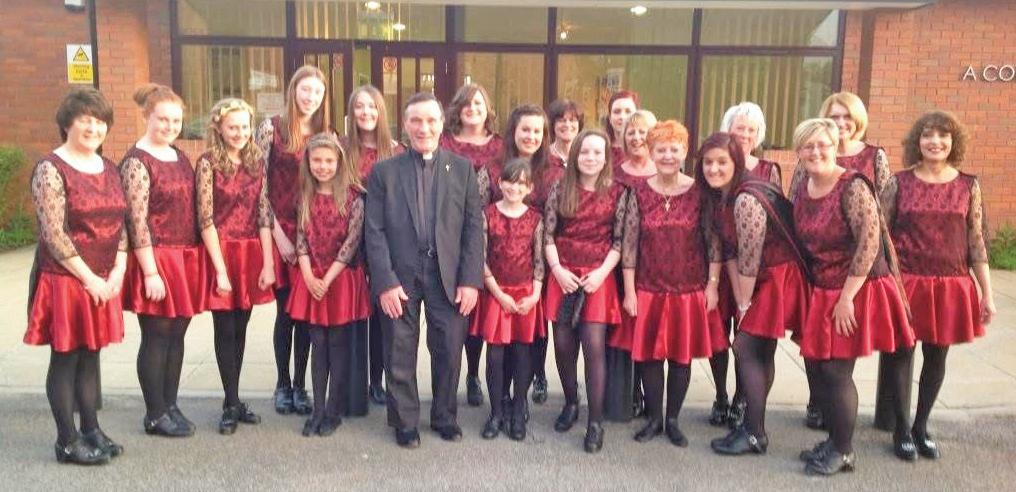
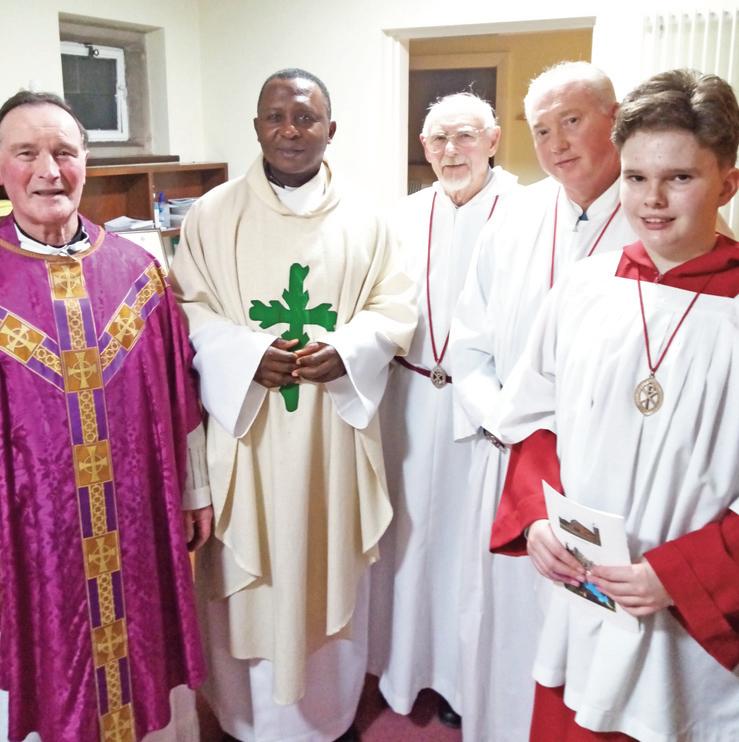
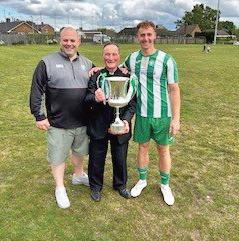
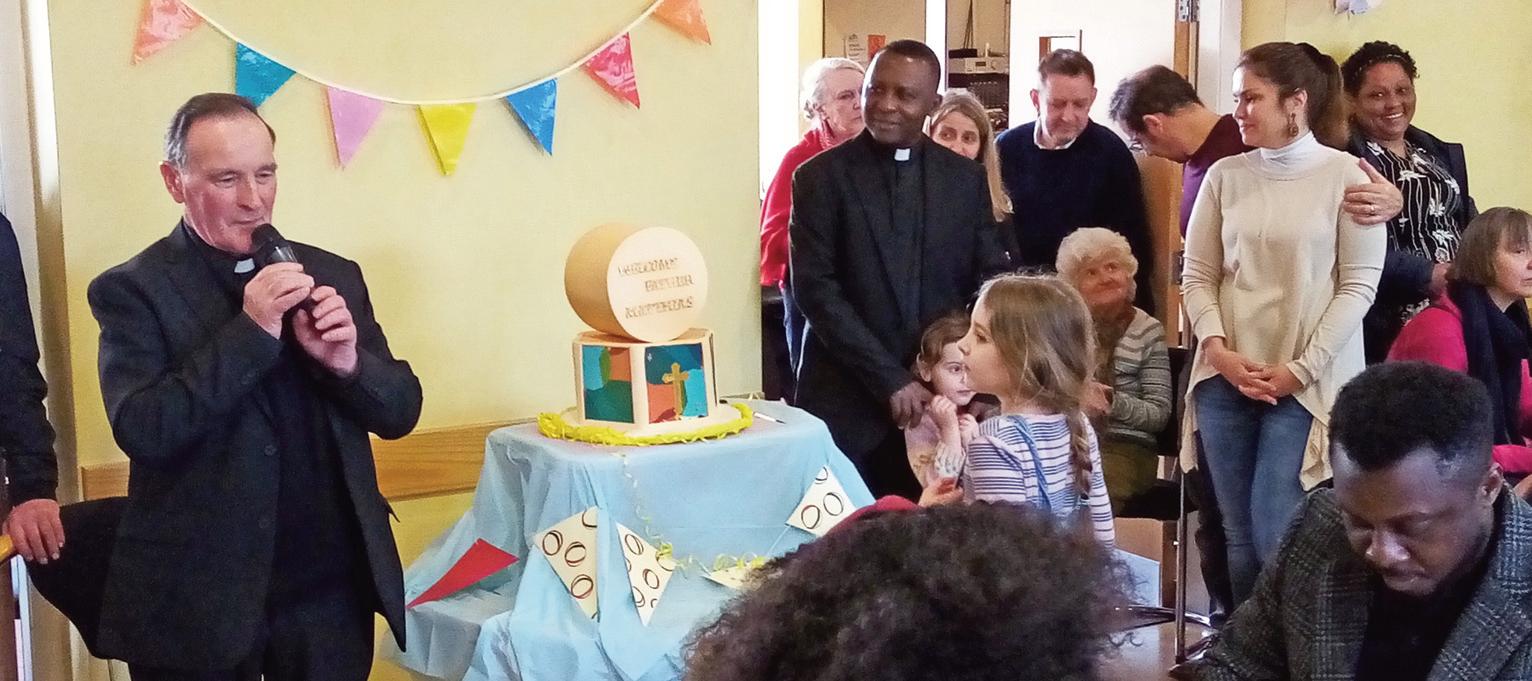
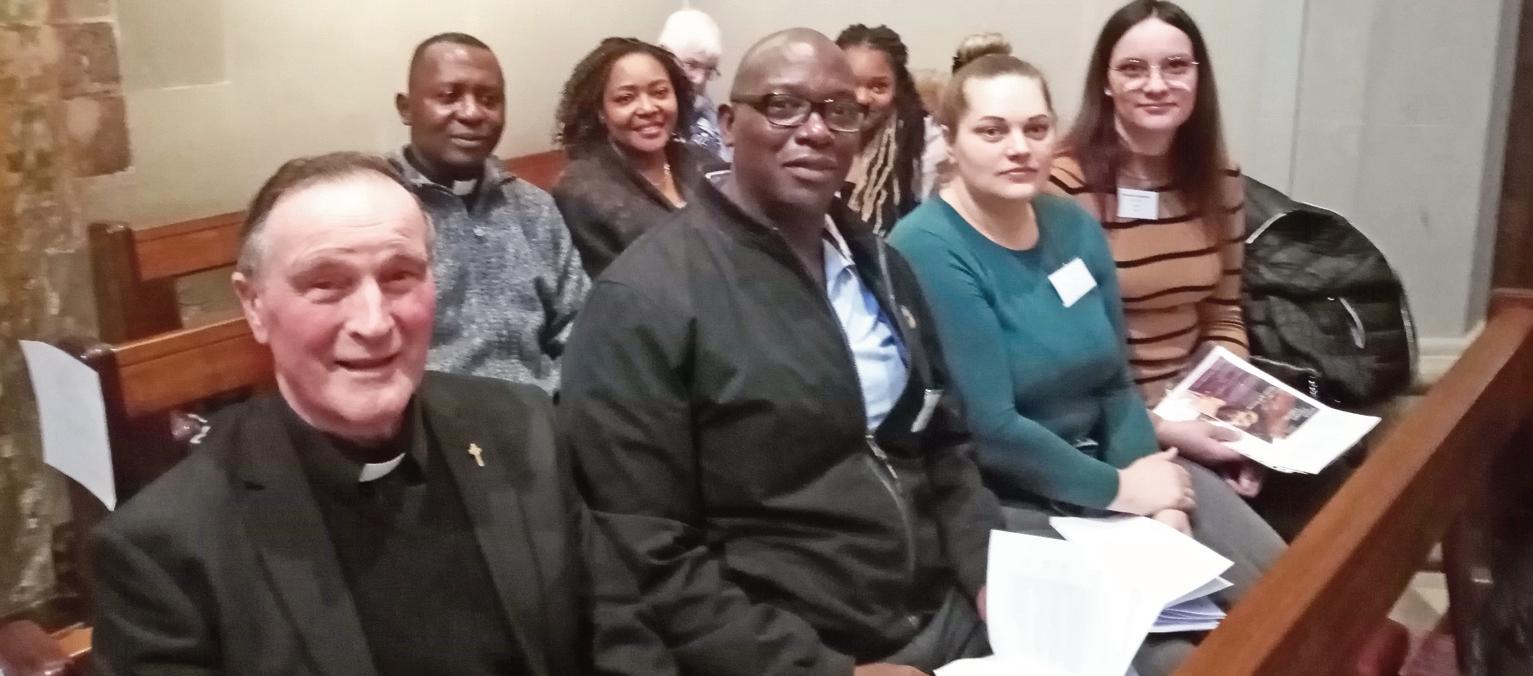
Barnabas means ‘son of encouragement’ and on Wednesday June 11th, the Feast Day of St Barnabas, parishioners from the Lincoln Catholic community made a day pilgrimage to Nottingham, by train. Arriving at St Barnabas Cathedral, the Jubilee Pilgrim Trail was undertaken, pausing for Mass and lunch in the garden. A time of peace filled silence in the Blessed Sacrament chapel ended the time there, prior to the return journey home.
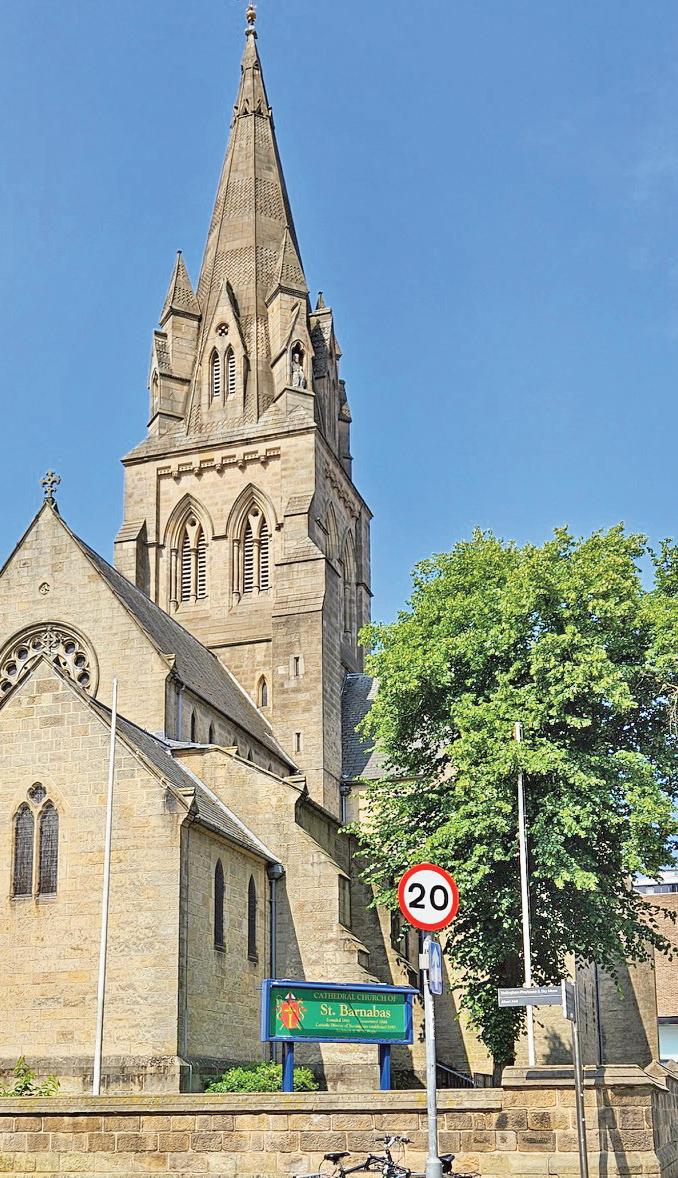
Using the trail focused the heart and brought to attention several features of the building unnoticed on previous visits, including the ‘Life of Jesus’ window which provided an opportunity to pray for the Church, for priests and vocations and to give thanks for the Sacraments, especially appropriate given the concurrent clergy conference and that the following day, the Feast of Our Lord Jesus Christ, the Eternal High Priest was to be celebrated. Aided by sunshine and the presence of a group of school children visiting from another town, it proved a lovely few hours; the time flew by.
Thanks to St Barnabas for what proved to be a relaxed day, yet encouraging in a whole host of ways. In this Jubilee year, a plenary indulgence can be obtained by visiting the cathedral, with the usual requirements met (opportunity for the Sacrament of Confession is available daily). Travelling by train added to the pilgrimage. Who would have guessed, Kings Cross is not the only train station to have its own version of platform 9 3/4; however, forget Hogwarts, the Heaven Express awaits! The next train to depart from platform 7 3/4 will be the xxxx service for Heaven, calling at ... this train has many coaches. All aboard! Choo-choo!
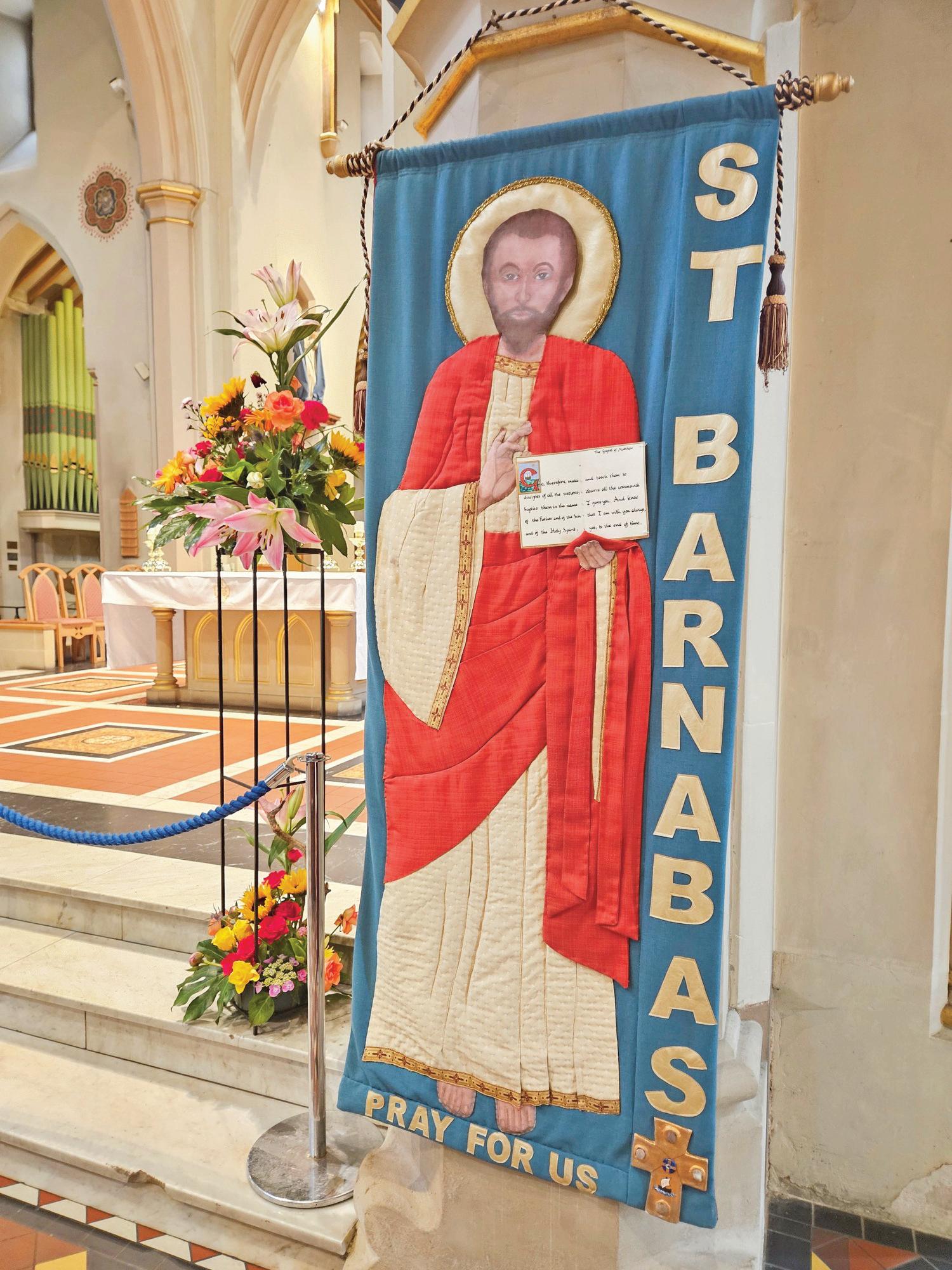
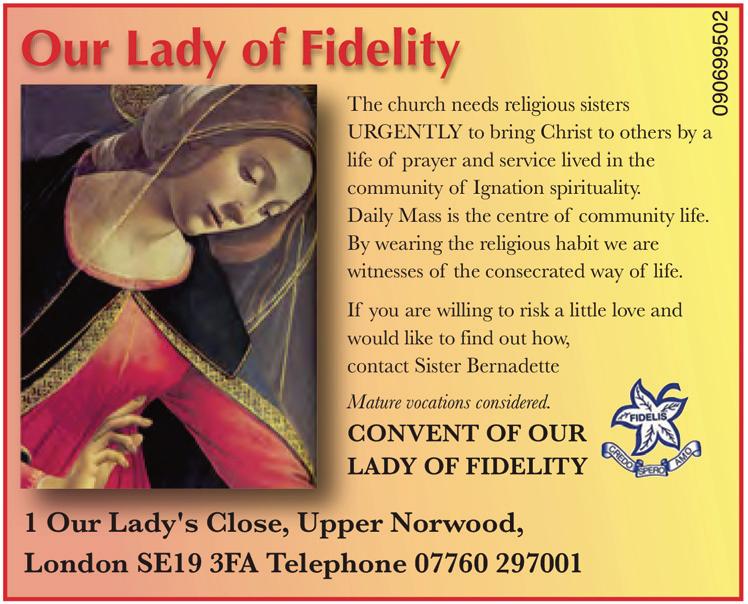

Please
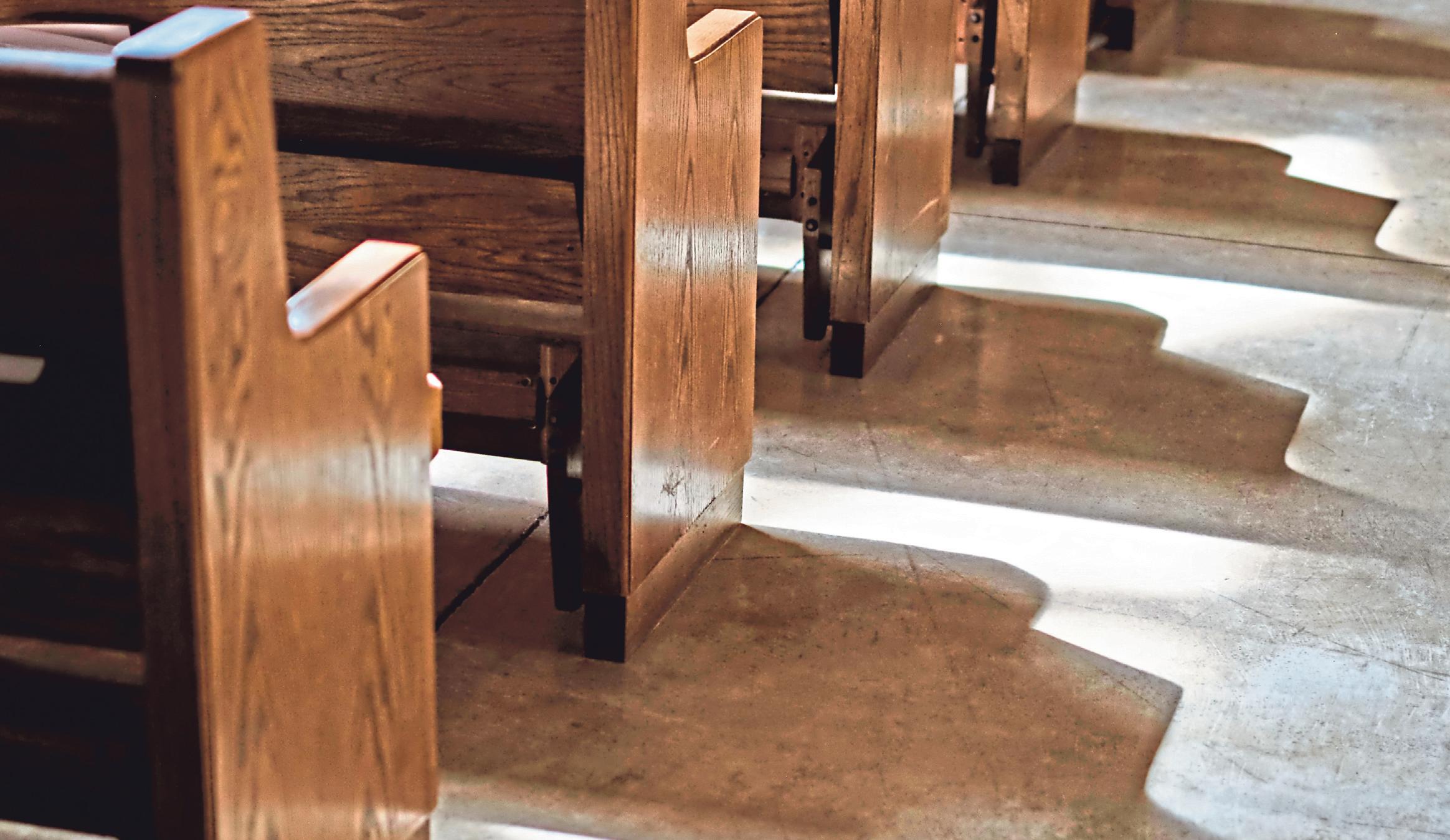

By Dr Jay Kettle-Williams
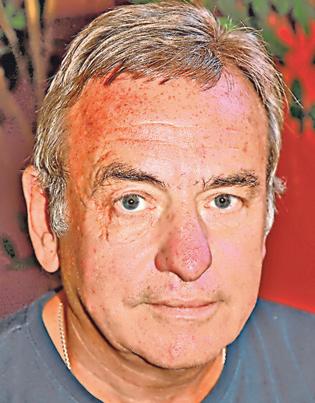
Legend has it that the two brothers, Tupí and Guaraní, migrated southwards across Amazonia following the established northsouth migratory pattern adopted by the indigenous peoples of the Americas. The two brothers finally decided to go their separate ways: Guaraní staying in central, southern Amazonia, the area now identified as Paraguay and the immediate vicinity, where Guaraní’s ‘name’ is applied to the native language most extensively spoken; Tupí moving eastwards into what we now recognise as Brazil. They had reputedly migrated from the region far to the north which was under the control of the ‘Big Chief’, whose title in the native tongue (Karaí-ve) then became identifiable as ‘Carib’, ergo ‘Caribbean’ and ‘cannibal’.


That practice of remembrance - ‘in the memory of’, ‘in the name of’ and then ‘handing on’ - is a rich vein of proselytisation running throughout our Christian faith.
The Jesuit missionaries rank foremost among the Europeans most immediately and extensively in contact with and working face to face with the Amerindians. The priest Marcos Villodas S.J. is a particular case in point.



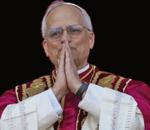




Cannibalism, humankind eating of its fellows, is as interesting as it is repugnant to many. A notable fact in this regard is that Amerindians were never considered to have practised cannibalism to survive, just to eat – such as has been recorded among Europeans. It was practised under two kinds: exo-cannibalism, whereby the sacrifice was chosen from beyond one’s own community; endo-cannibalism whereby the target was selected from within one’s own unit. The point of either practice was to instil in the practitioners the qualities they admired in the person being sacrificed. So it is easy at this point to understand how readily Amerindians, being tutored by the Jesuit missionaries from Spain, could understand and even embrace the Christian message of communion.

For all your advertising requirements please contact Nick on 01440 730399 nick@cathcom.org
Even today we have the tradition of recognising an individual’s qualities, that individual perhaps even being a family member, and then calling children by that person’s given name in order to instil the qualities admired: Jesus, Mary, Joseph, Matthew, Mark, Luke, John ... But this practice of ‘naming after’ is not limited purely to the Christian tradition, not limited purely to the other Abrahamic faiths and not just limited to people: Cosmo, Sitting
The Jesuit missions among the Guaraní were like settlements-cumreservations, mission stations where the native populations were gathered into communities called ‘Indian reductions’ (Spanish: reducciones de indios). These missions, covering an area touching on Argentina, Brazil and Paraguay, had been established by the Jesuit Order early in the17th century and ended in the late 18th century with the expulsion of the Jesuit order from the Americas. The debate is ever ongoing as to whether those missions were an experiment in socialist theocracy, perhaps a rare example of benign colonialism, or a denial of the Indians' freedom, of their lifestyle, while subjecting them to physical abuse and exposing them to disease.
Fr Marcos - b. 1695 in Nanclares de Gamboa, Álava, Spain; d. 1739 or 1741 (reports vary) in Santa Fé, Argentina - had left his Basque homeland to help spread the Christian message. It took him to where the language of Guaraní is extensively recognised and practised to this day. Exactly three hundred years ago, in 1725, Fr Marcos published his 319-page manuscript, POJHA ÑAÑA, Materia Médica Misionera o Herbario de las Reducciones Guaranies, a compilation in Guaraní (see extract) of the medicinal properties, as known to the indigenous people at the time, of herbs and plants native to the flora of the

area. So extensive is such nomenclature in Guaraní that it reputedly exceeds those in Latin and Greek combined.
Fr Marcos presumably acknowledged that for thousands of years herbs and plants would have been used by the Amerindians in various combinations to prevent and treat illness. We have probably only touched the tip of that iceberg. Crosscultural awareness - the comparative and contrastive study of others’ cultures - is a 2-way street not only by which we can teach but by which we can also learn.
Acknowledgements and Attribution: Accompanying image (Statue with Blowing Horn) after the sculpture Exultate Jubilate by Philip Jackson.Texts/References adapted and/or adopted from http://en.wikipedia.org under the terms of the Creative Commons AttributionShareAlike License 4.0: http://creativecommons.org/licenses/bysa/4.0/

Dr J L Kettle-Williams is an experienced business communications consultant and wordsmith (tutor, writer, translator).
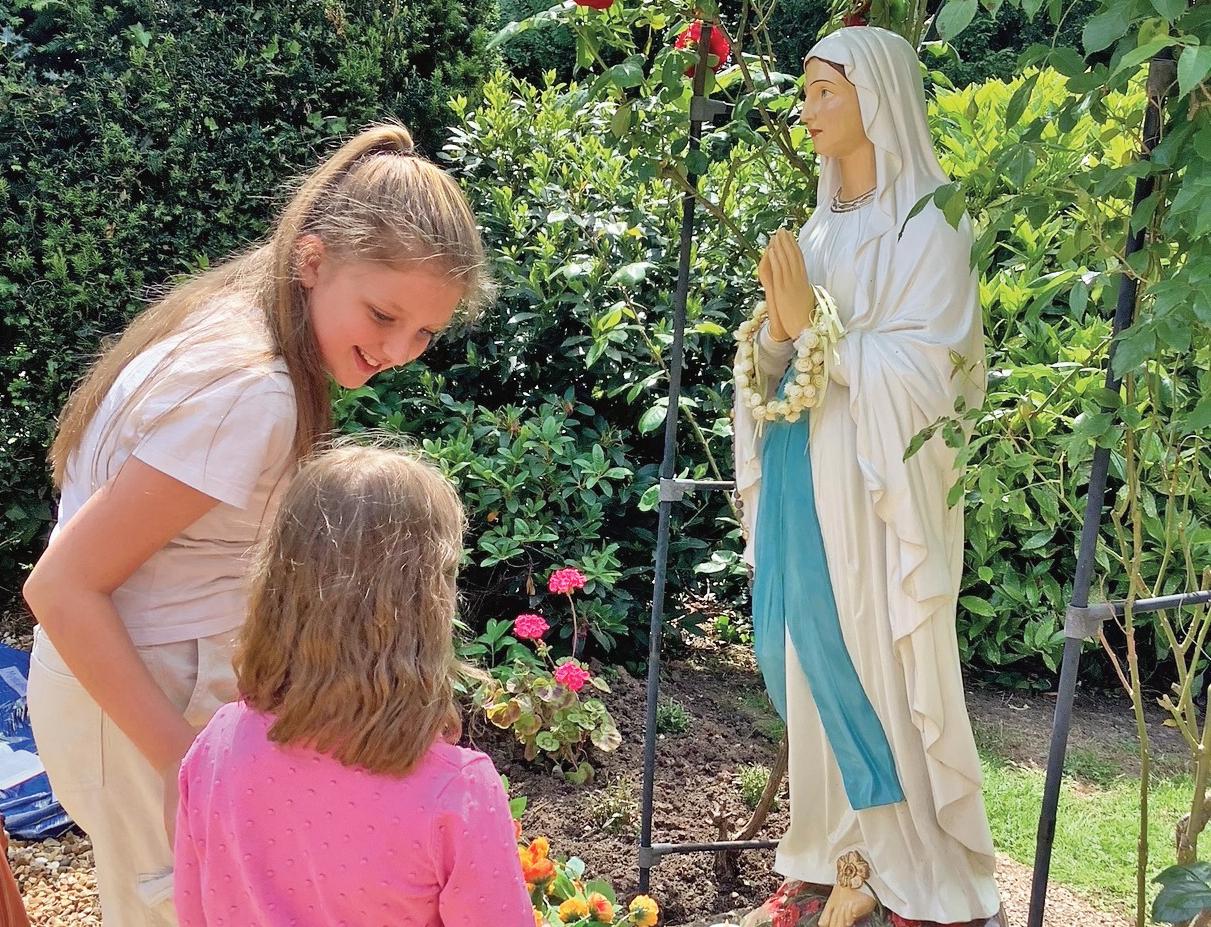
St Mary’s Catholic Voluntary Academy in Derby celebrated their patron, Our Lady, with a commitment to pray the Rosary for Aid to the Church in Need’s Rosary Rally.
The children processed to St Philomena’s Convent to the beautiful statue of Mary the Sisters have in their garden. Mary was crowned, Queen of Heaven, and the children prayed the Glorious Mysteries of the Rosary and sang, ‘As I Kneel Before You.’
The children were joined by Sisters from the Convent, retired priests and the clergy from St Ralph Sherwin Parish. It was a prayerful and inspiring occasion.
Parents and children prayed the Rosary after School in the Chapel during the month of May. These prayers can have a powerful effect in our world and are what Mary asked us to do.
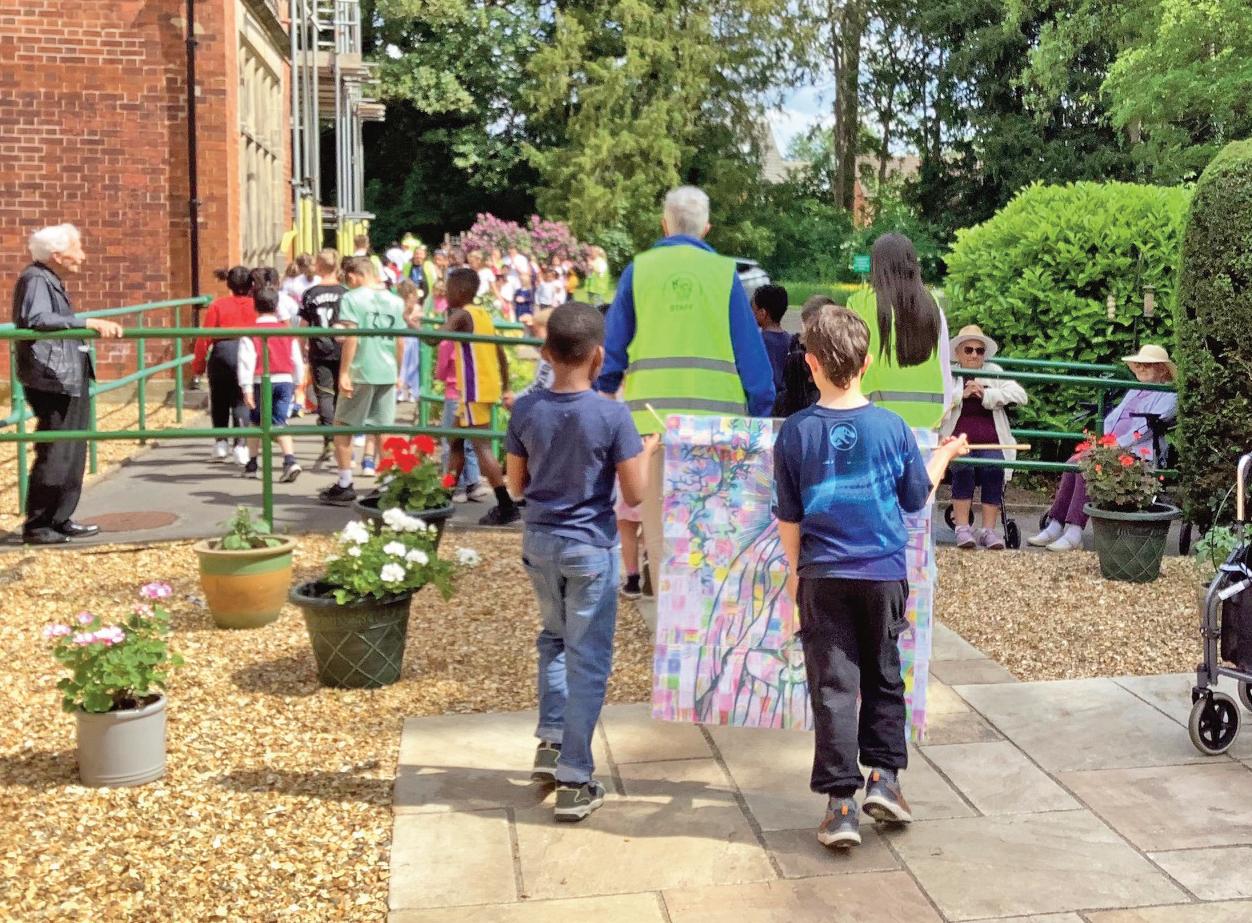

























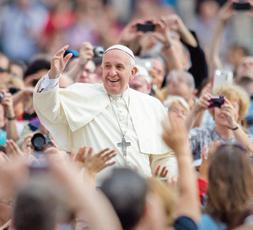
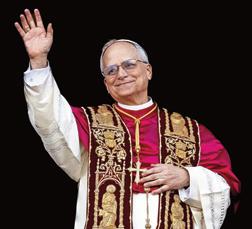
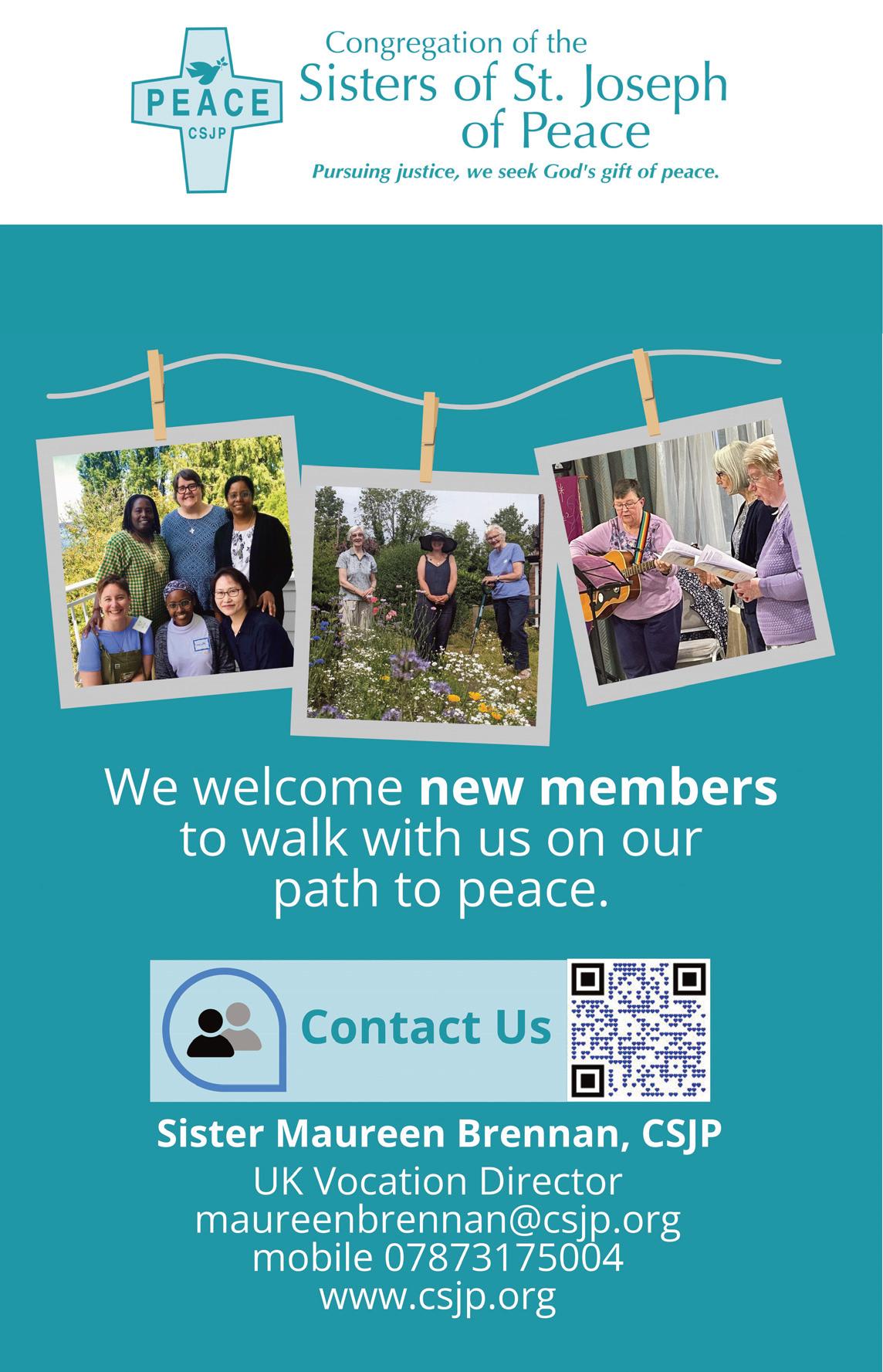
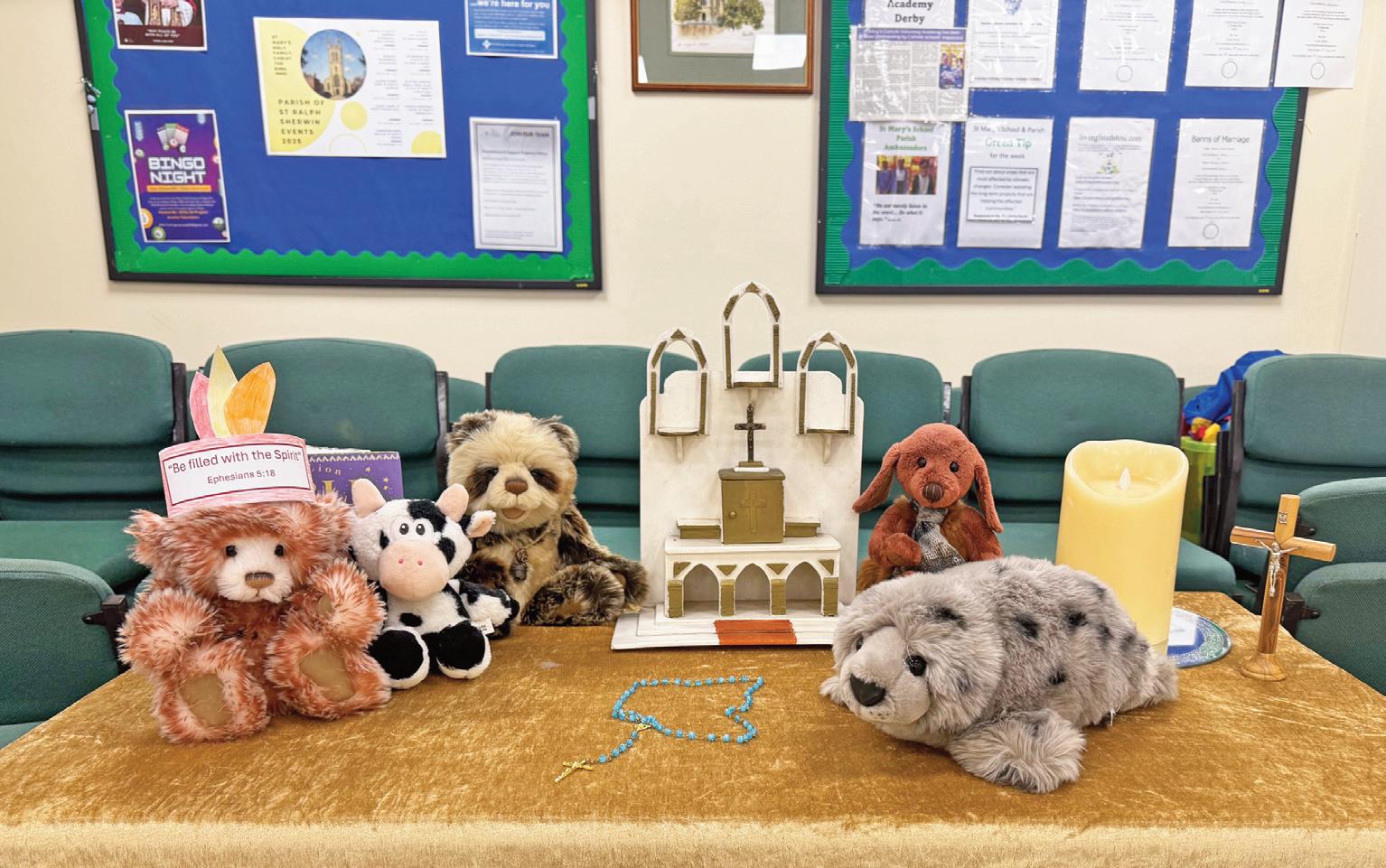
At St Mary’s Parish Hall in Derby, Children and parents had a wonderful morning celebrating the coming of the Holy Spirit at Pentecost. They made meditation jars with coloured salt, doves with real feathers, candles saying hello in different languages, flame hats, sang songs, had parachute games celebrating the Fruit of the Spirit and watched a video of the St Mary’s Messy Church mascot, Charlie Bear, acting out the Ascension with his friends.
They were joined by Sister Beatrice from the Arusha Diocese in Tanzania, who is visiting the area at the invitation of the Parish Arusha Project, to learn more about the English education system.
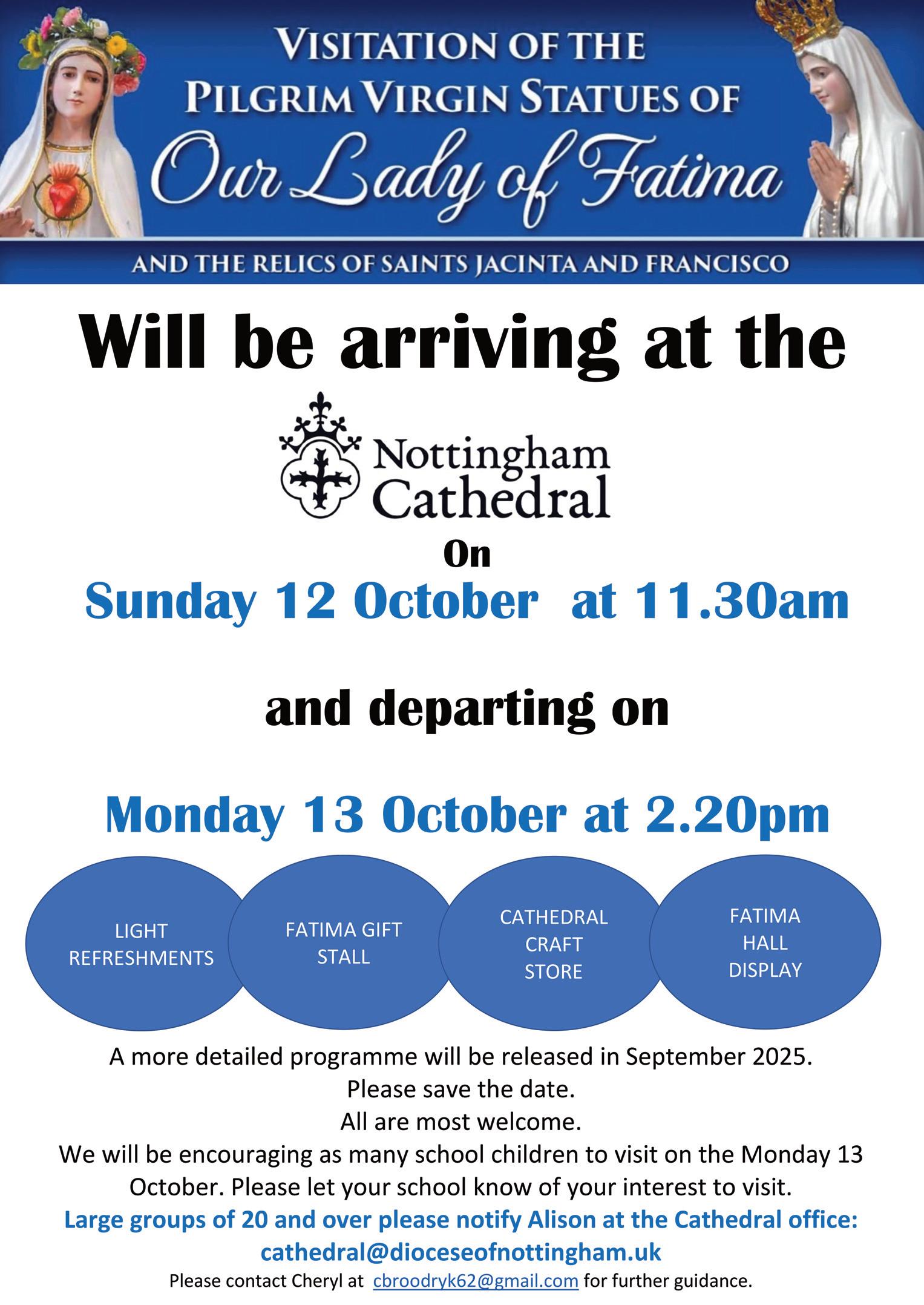
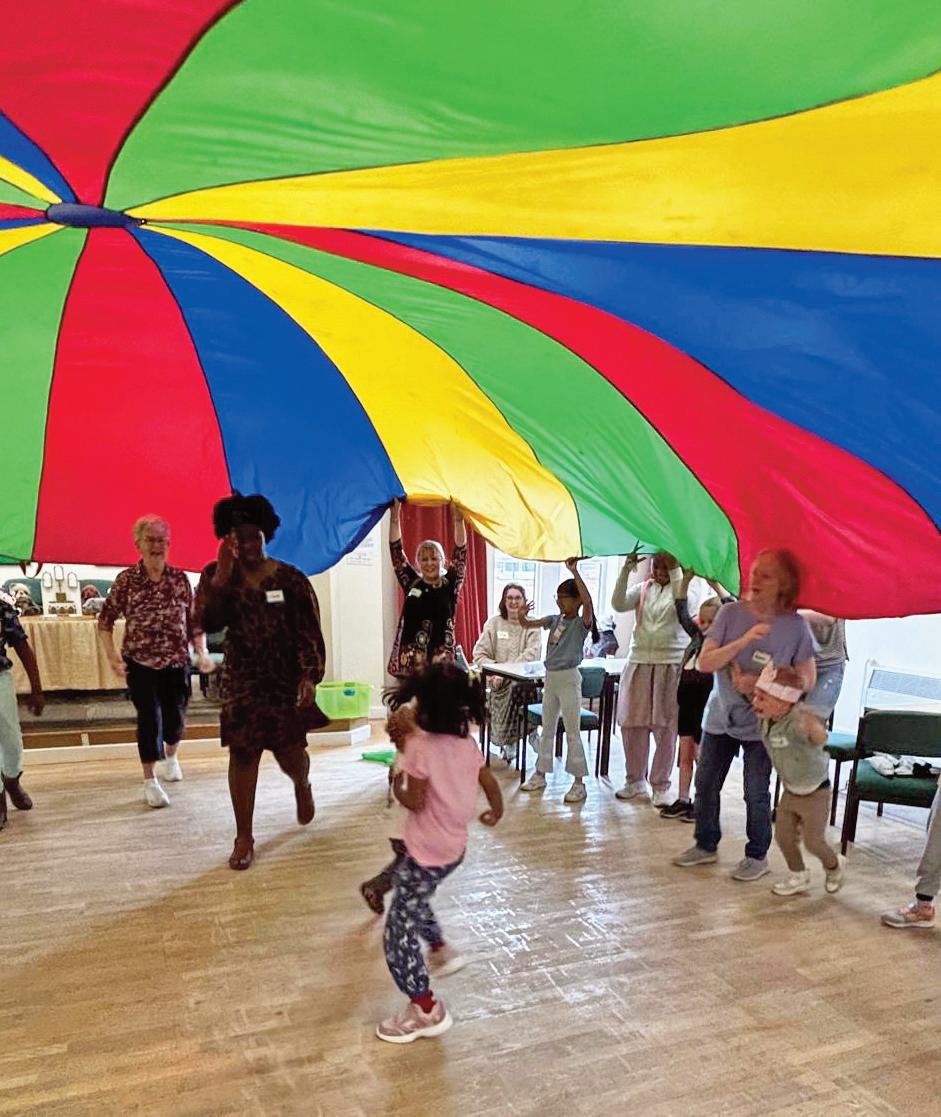
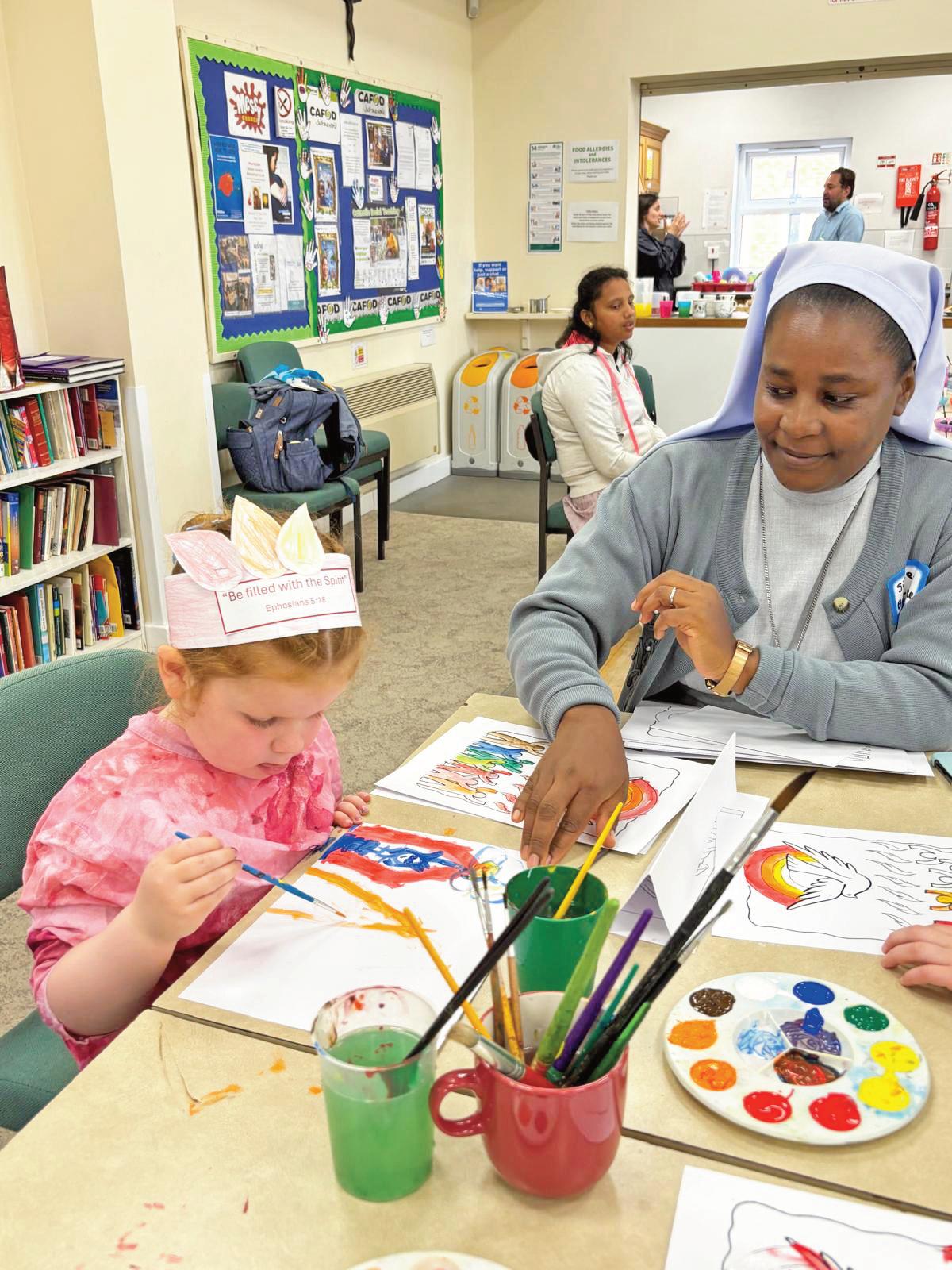
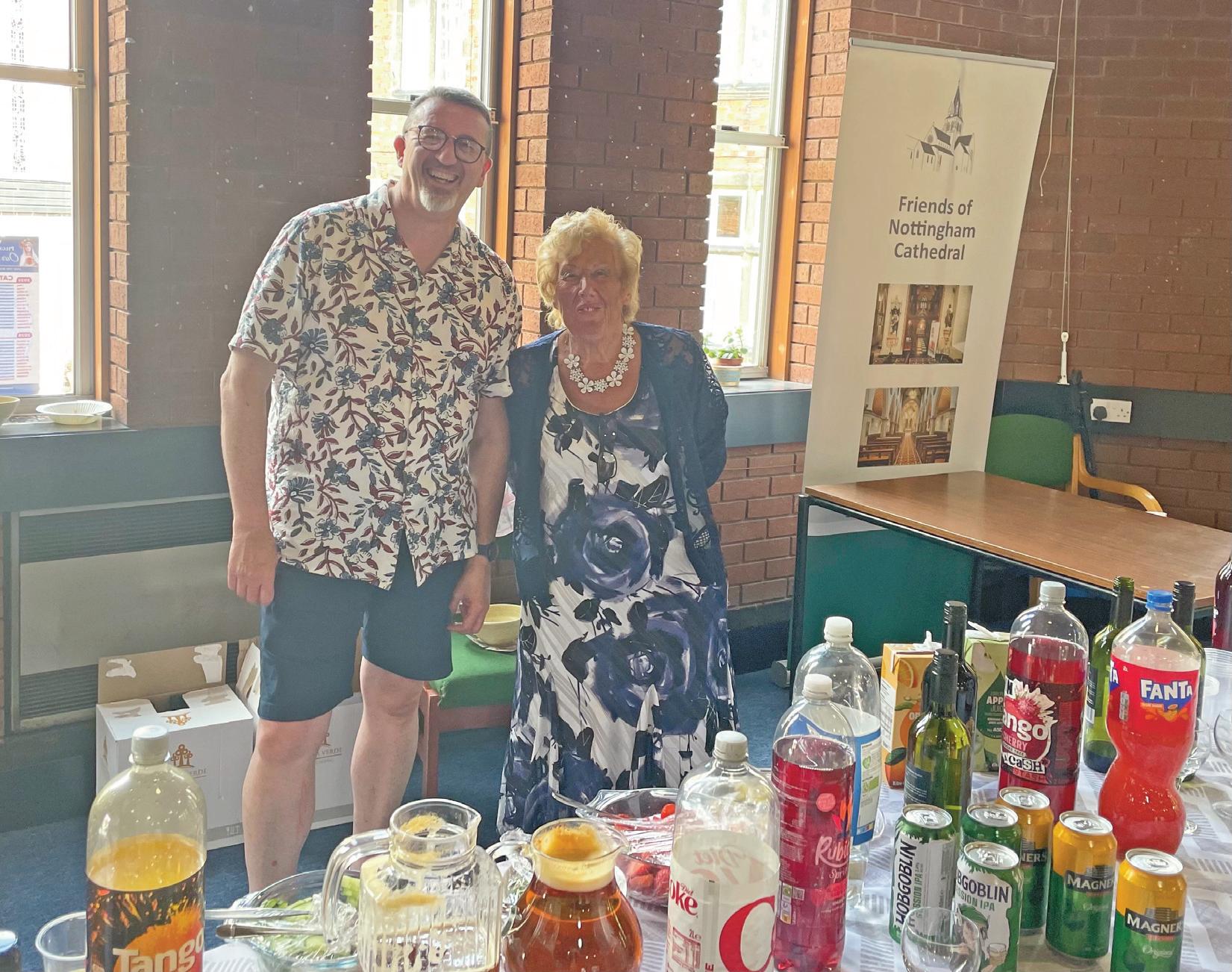
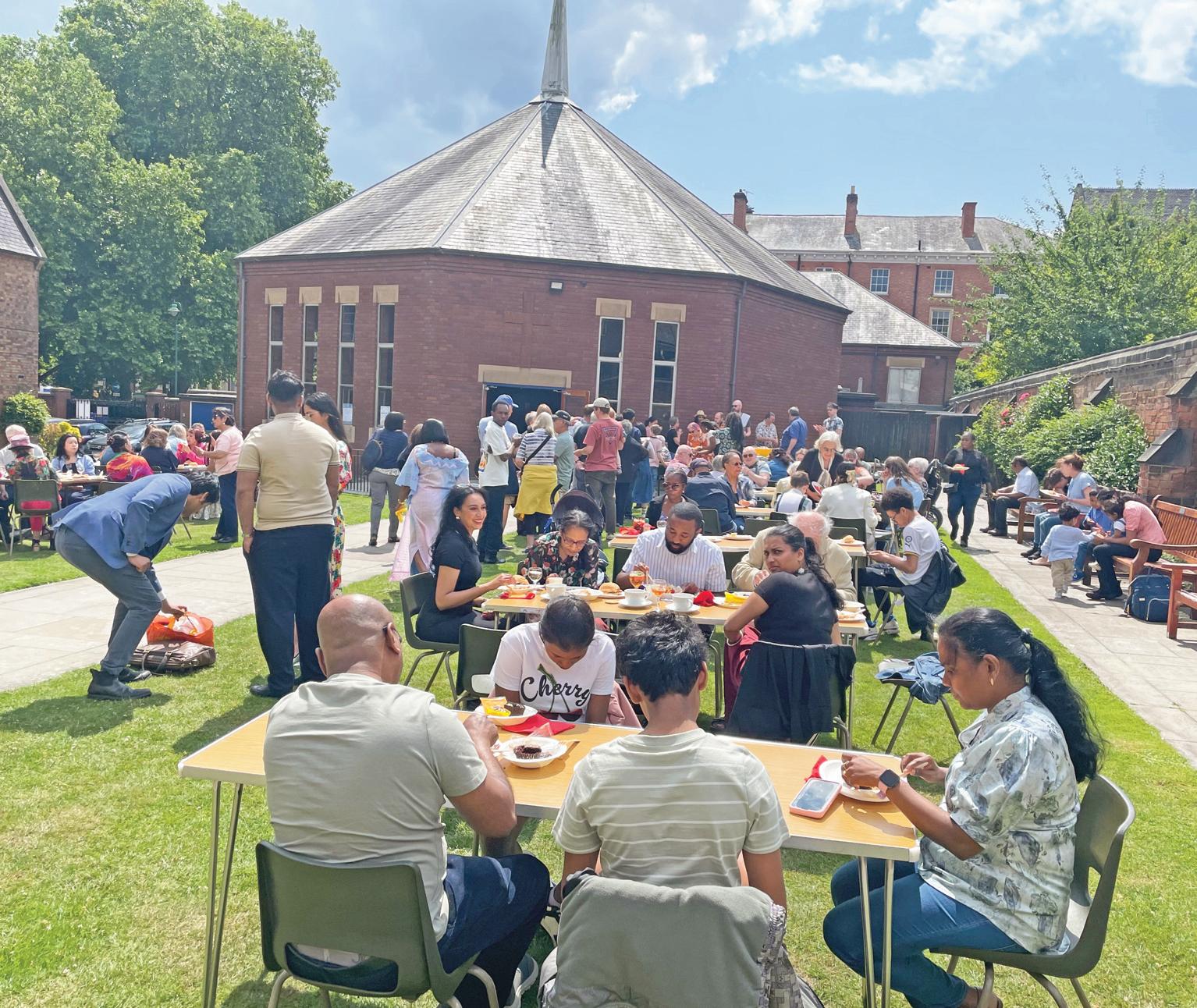
The Nottingham Cathedral of St Barnabas celebrated her feast day with her community, family members and many friends. The weather was glorious with table and chairs placed outside in the Cathedral gardens as people settled down to enjoy their three course meal. The annual barbecue is a highlight of the Cathedral’s calendar, always well attended and greatly appreciated by all. A big thank you to all those who made this happen. We look forward to our next feast day!
on behalf of the
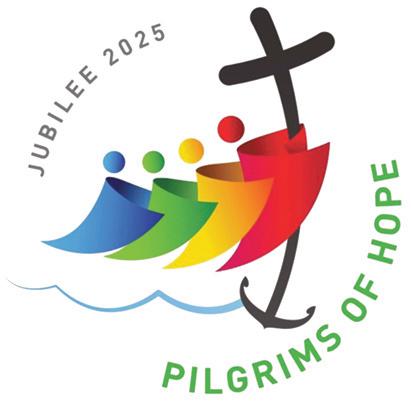
A fun-filled Colour Run at St Anne’s Catholic Voluntary Academy in Buxton raised over £200 for charity.
Staff at the school showered pupils with brightly coloured powder as they ran around the school playground.
Every pupil at the school brought in £1 to take part and raised £230 which will go to the Thomas Theyer Foundation, a charity that was selected by the pupils.
Becky Rose, class teacher, organised the event as part of a series of initiatives during the Jubilee Year in the Catholic Church, which has the theme of Pilgrims of Hope.
In the Catholic Church, a Jubilee or Holy Year is a special year of forgiveness and reconciliation.
Mrs Rose said: “We have been doing lots of things in school to link to the Jubilee Year. “The Colour Run was to do with walking in

solidarity but we decided to run in solidarity. Our School Council voted to support the Thomas Theyer Foundation, it’s a local charity so it’s very visible for them.
“We also held a tiny tea party and invited parents. We had a cake sale and raised £75 for CAFOD to buy chickens for vulnerable families overseas. As part of our reconciliation the children wrote

forgiveness pledges and we burnt them. We also had a Feast Day and created lanterns and went singing in each other’s classes.
“We had a celebration for Eid and children from other religions wore their own clothes and pupils also made cards for a lady who was in a care home and was turning 100.”
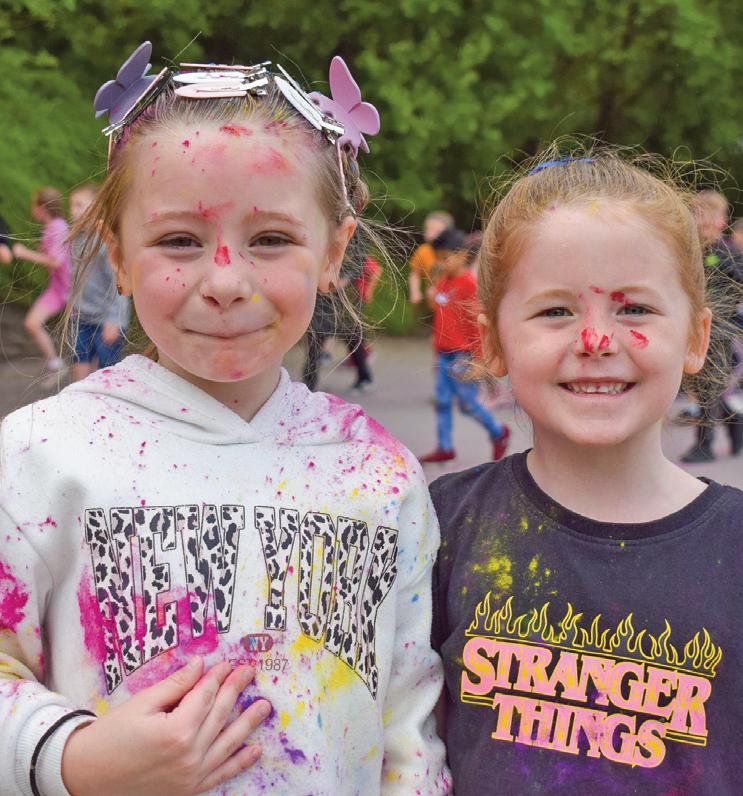
Pupil Harry, nine, who is a member of the School Council, said: "We chose Thomas Theyer because we see the charity raising money around Buxton and because Thomas was a young person like us."
Pupil Eliza, six, said: " I liked the colourful paint and running around the playground, it was funny to see the teachers all covered in paint too."


You can use both sets of clues to solve the puzzle: the solutions are the same.
CRYPTIC Across
1 Samuel's crafty man, cursed sailor almost catches fish (7)
5 When in Paris I discover Ecclesiasticus' Ben Sira (5)
8 Paul's detailed letter describing the Empire (5)
9 'Papae Sixti nisi est' is translated in chapel (7)
10 Move against female martyr (7)
11 One of two helping David find themselves amongst rabbit tails (5)
13 American girl's written first 18 for the 8 Church (6)
15 Abram's Amorite ally, Chloe's opposite (6)
18 Microphone, small American contribution to St Cecilia's art (5)
20 Abram's servant high priest announced 'easy', being first to Rebekah (7)
22 Girl, old golfing type, attends Baptist chapels (7)
23 Savings account he's almost sacrificed (5)
24 Chaplain of Artillery's name is forgotten (5)
25 Morning, is he wrong in thinking there are no Gods? (7)
CRYPTIC Down
1 Parry's hymn from John's first letter includes line in dubious measure (9)
2 Some Old Testament volumes (7)
3 Had Ulster divided, all over Jacob's daughter (5)
4 Vehicle to get to old Number One: was it Ave Maria for him? (6)
5 Society of 5 business types follow the first person in speaking French (7)
6 Being second in the East End isn't one of the blessed dead (5)
7 View bishop's domain (3)
12 Sick with icy rum, plying, 8s said, this part Aegean coast (9)
14 One relative, the first maybe to describe lepers in the Bible (7)
16 Old footballer swapping cap? It's over for one writing 18 for the 8 Church (7)
17 Biblical country, to scupper Siamese, partly invaded (6) 19
Angel is originally sadistic, and threatening and nasty (5)
21 One quiet small US state imbibed whiskey (5) 22 Tooting, when passing over an abbey in France? (3) QUICK Across
1 Friend of Amnon, 'a very shrewd man' (7)
5 Another name for Elymas: Bar - (5)
8 Empire which ruled Palestine and Asia Minor in NT times (5)
9 Chapel of the Vatican whose ceiling was famously painted by Michelangelo (7)
10 First Christian martyr (7)
11 Leader of the Gittites (5)
13 Orlande de , with Palestrina and Victoria, the three giants of late medieval Church 18 (6)
15 Vale where the Israelites cut a cluster of grapes as proof of the Promised Land's bounty (6)
18 Integral aspect of many church services (5)
20 Son of Moses and Zipporah (7)
22 Name applied for a group of 19th century nonconformist chapels (7)
23 The second patriarch; son of Abraham and Sarah (5)
24 Priest who is a member of a cathedral chapter (5)
25 Lack of belief in the existence of God or gods (7) QUICK Down
1 Holy city for Jews and Christians and Muslims (9) 2 Fourth book of the Pentateuch (7)

14 Having a physical or moral blemish so as to make impure
16 Maurizio -, important early 17th century composer and maestro di cappella at Bologna (7)
17 OT empire created by Cyrus the Great and destroyed by Alexander the Great (6)
19 Adversary of God; tempter of mankind; master of Hell (5)
21 Scots Gaelic (5)
22 Influential Benedictine abbey of Normandy at the time of the Conqueror (3)
3 Daughter of Leah and Jacob (5) 4 Ferruccio one of many to have composed a version of Ave Maria (1877) (6)
5 Followers of Ignatius of Loyola (7)
6 Holy person deemed worthy of canonization (5)
7 Bishopric (3) 12 8 province from 27 AD, covering much of the eastern Adriatic and Balkan interior (9)